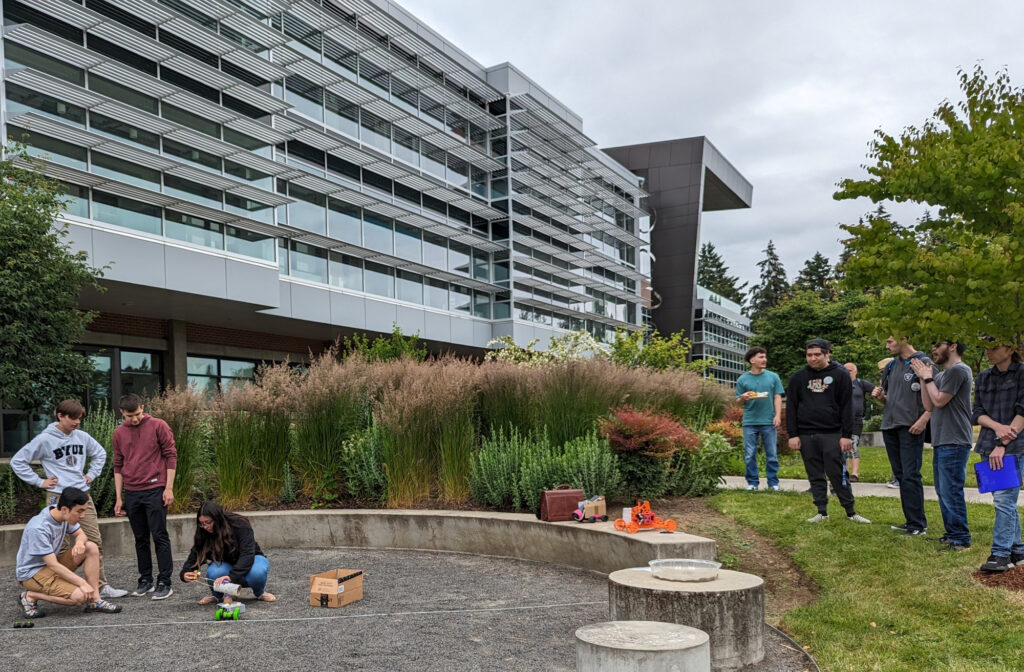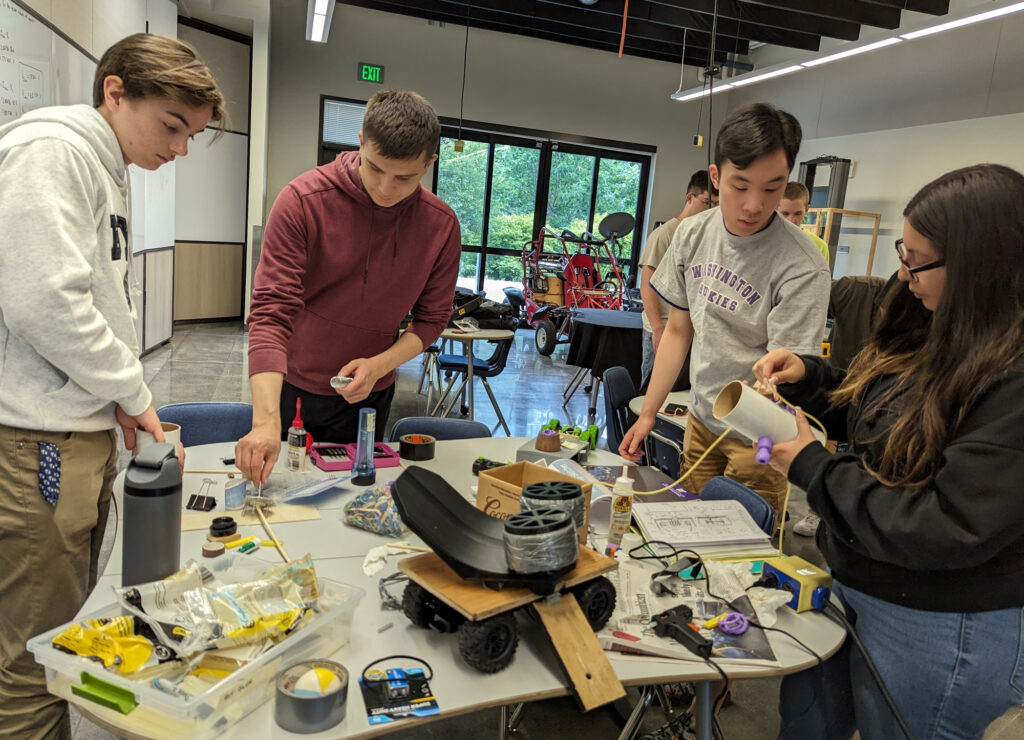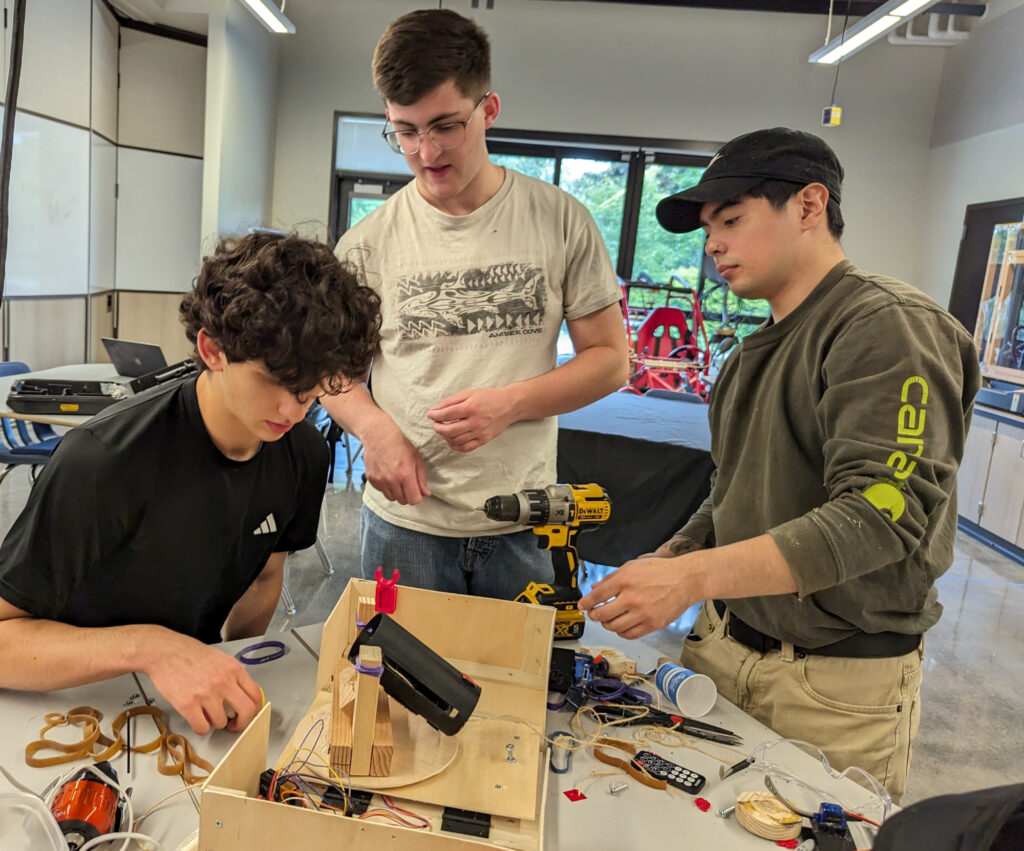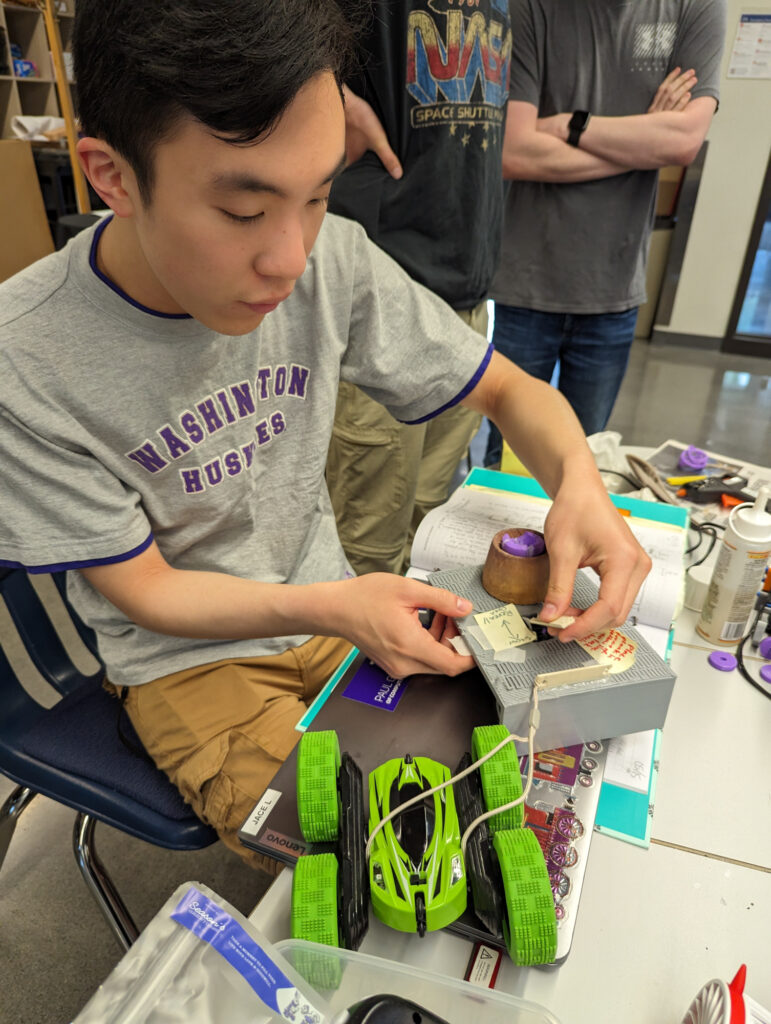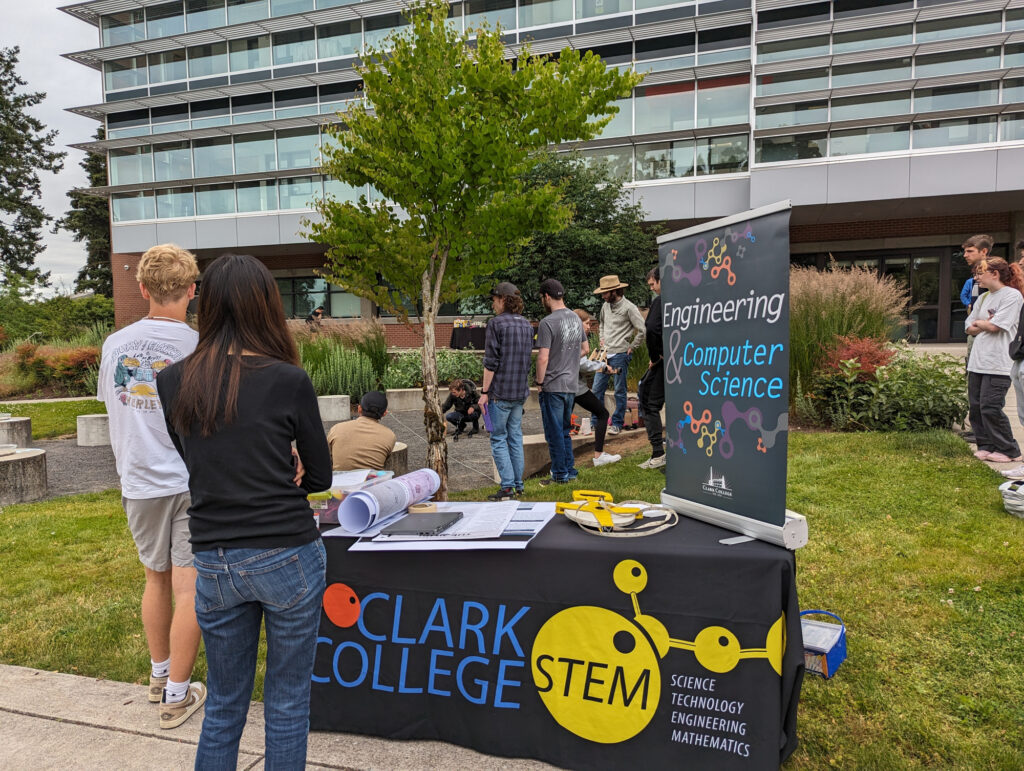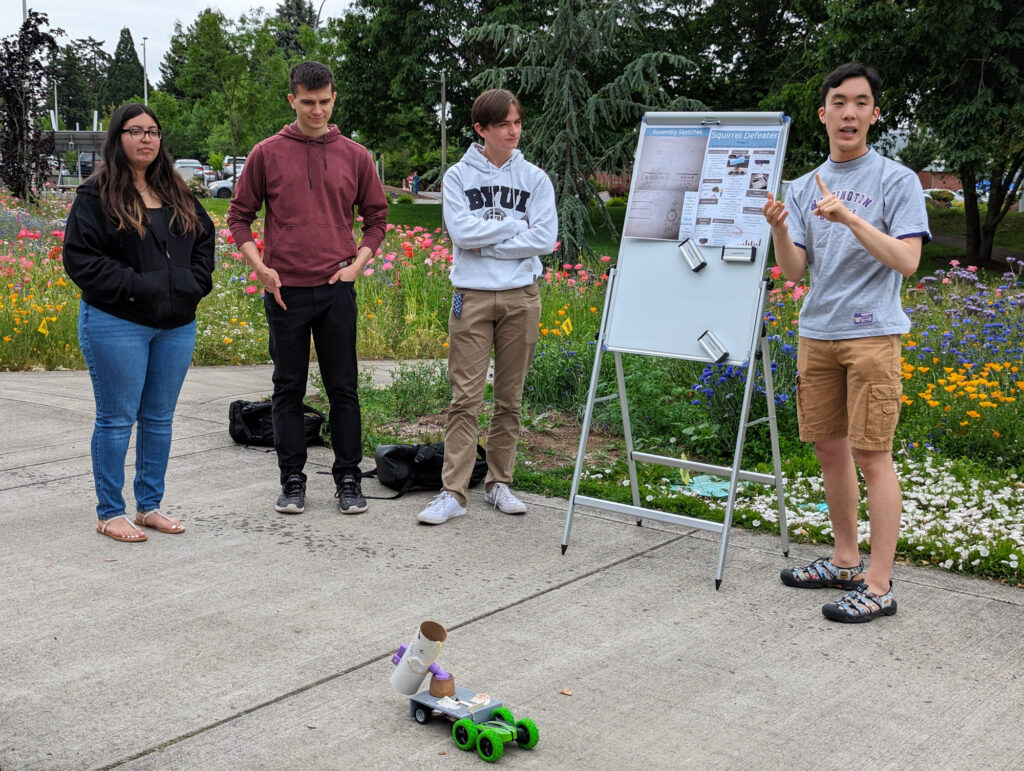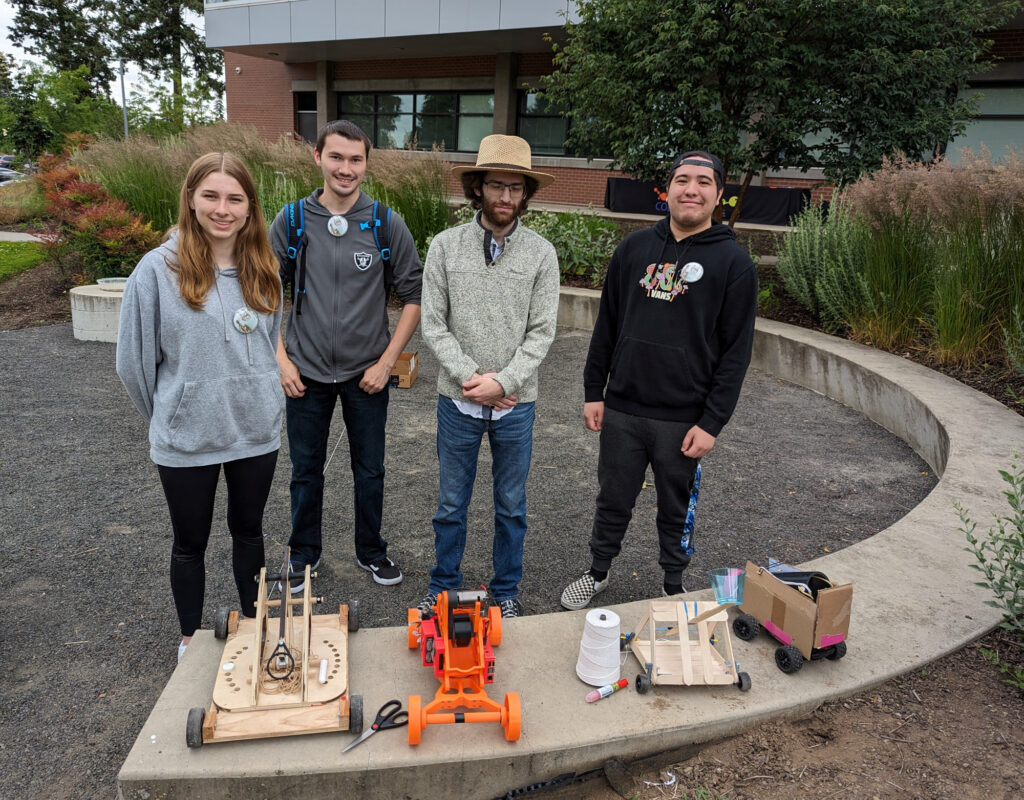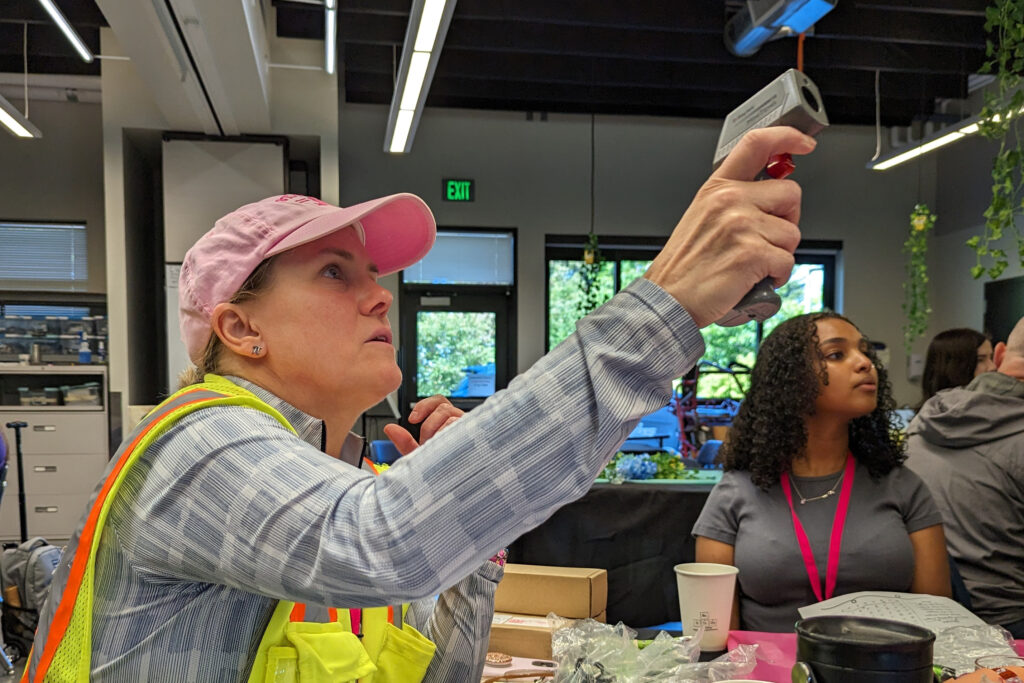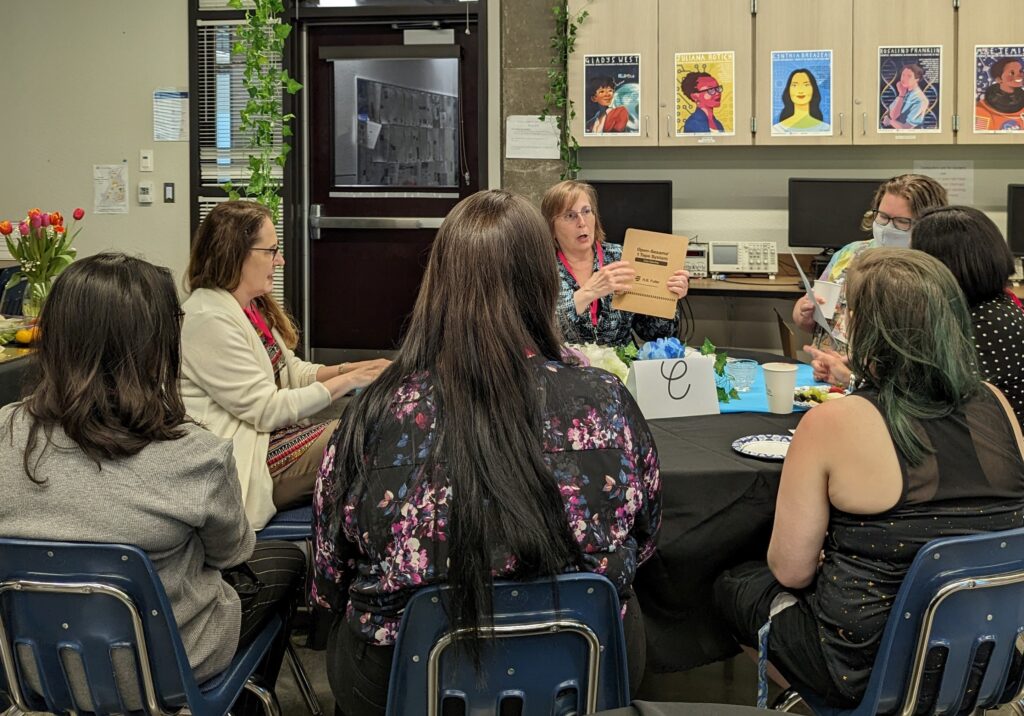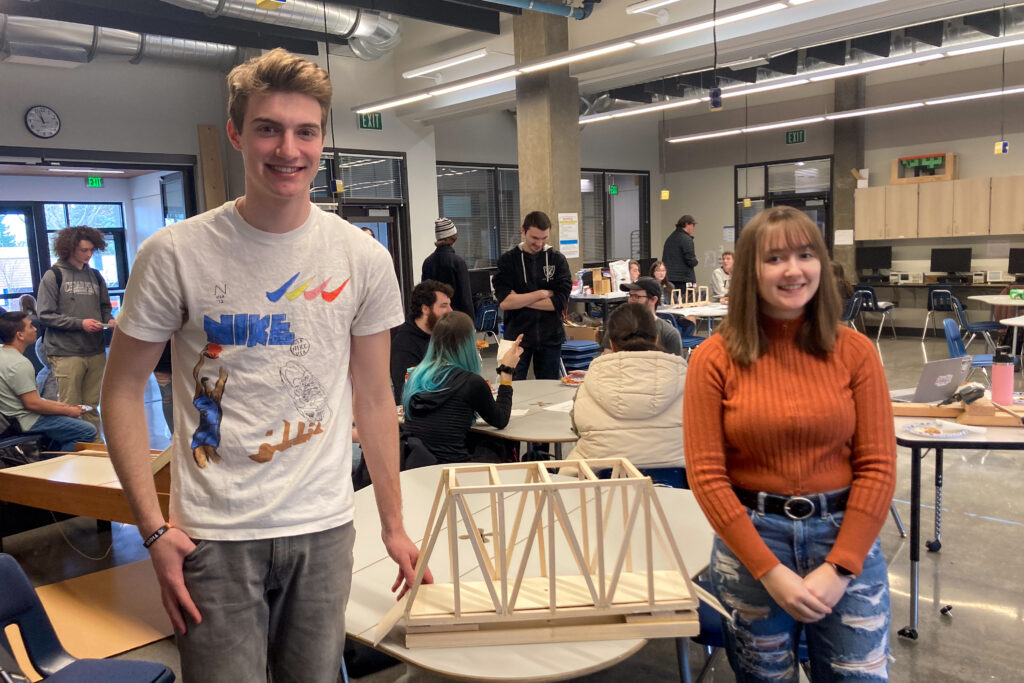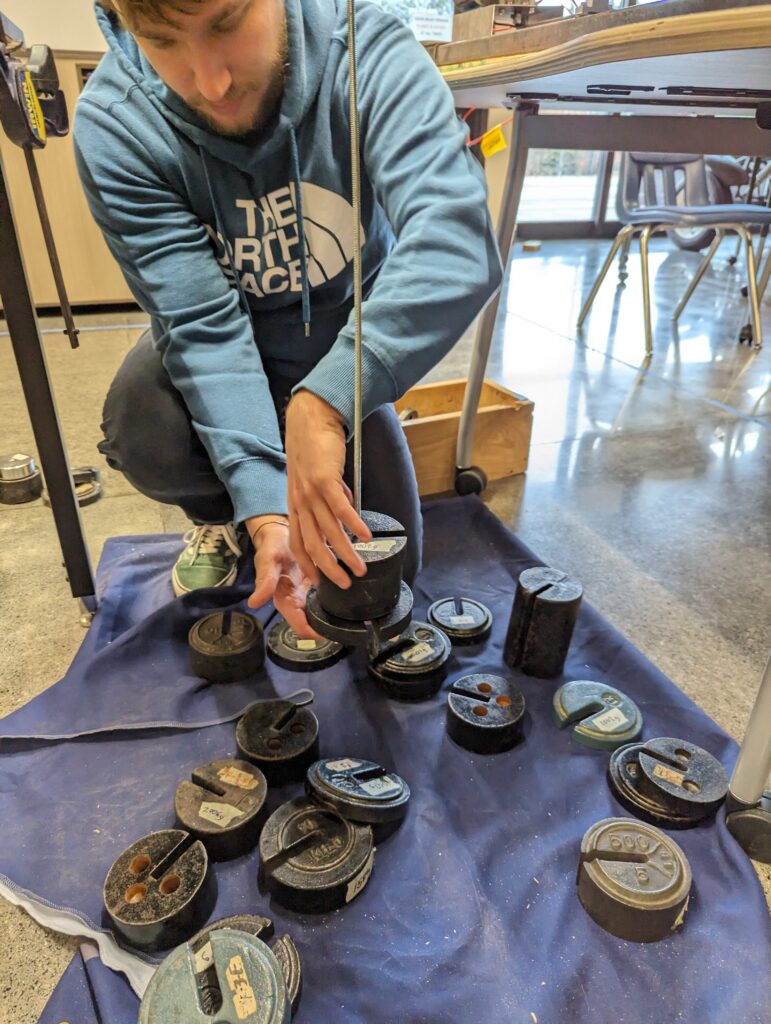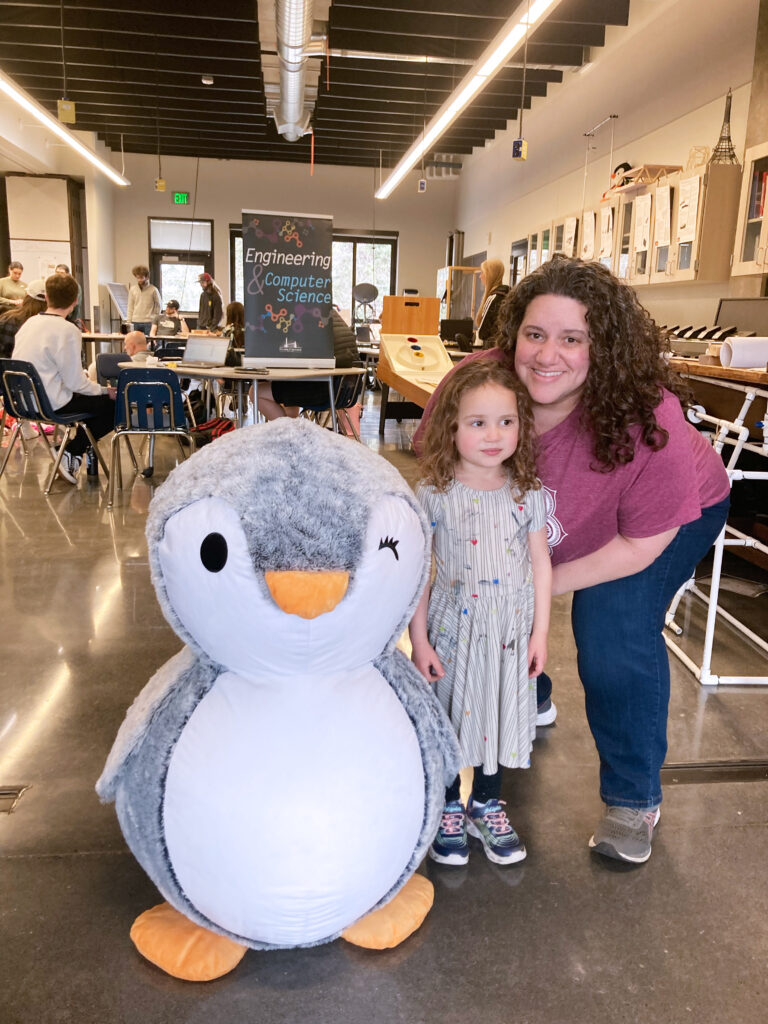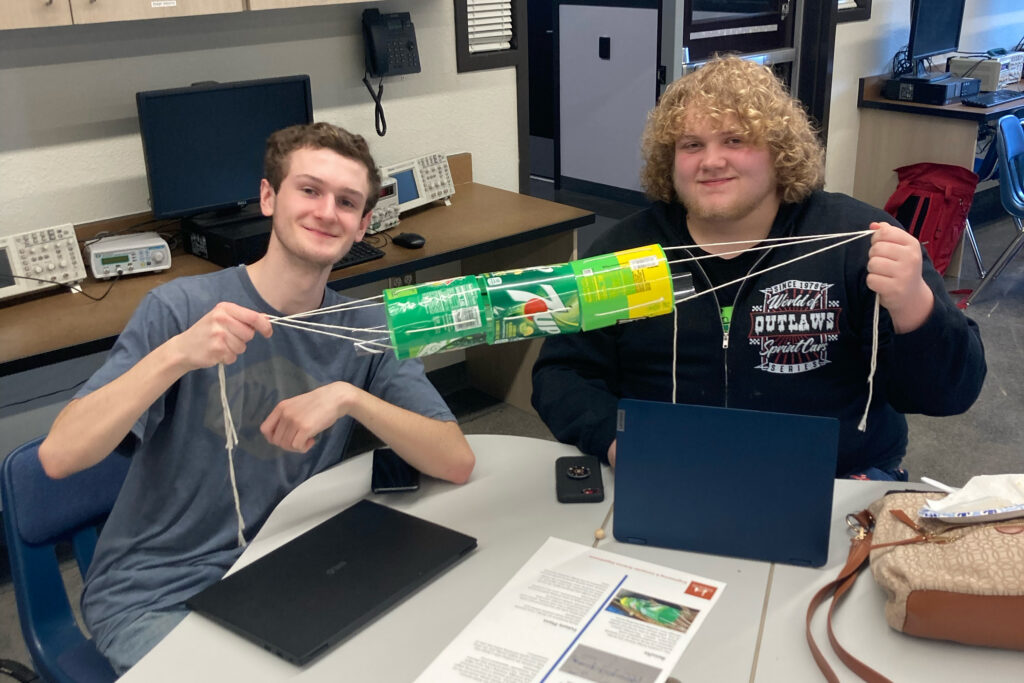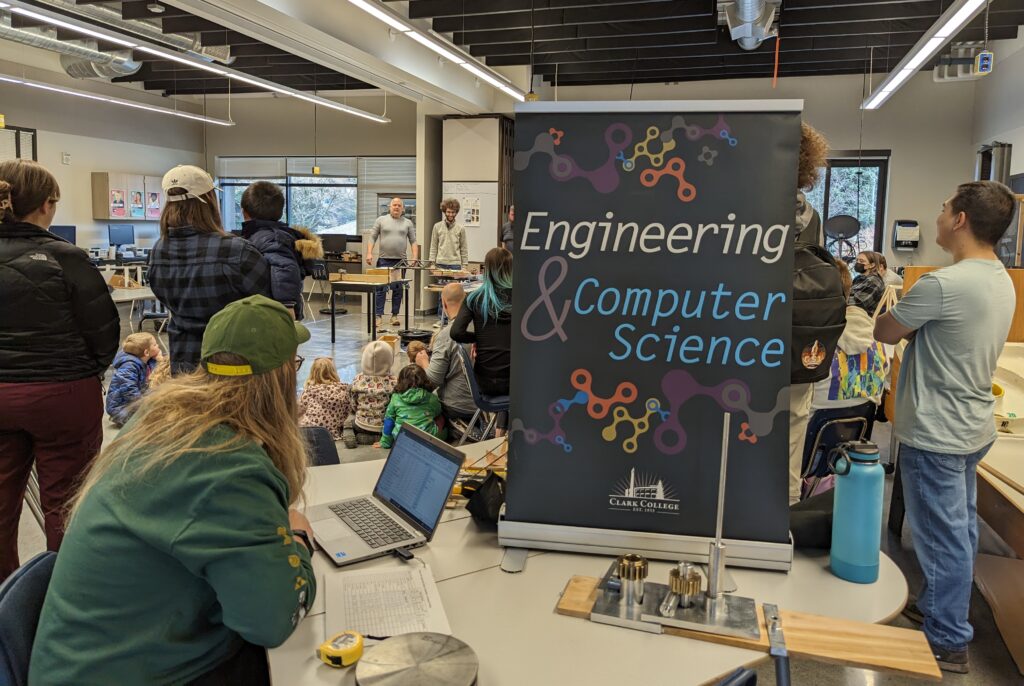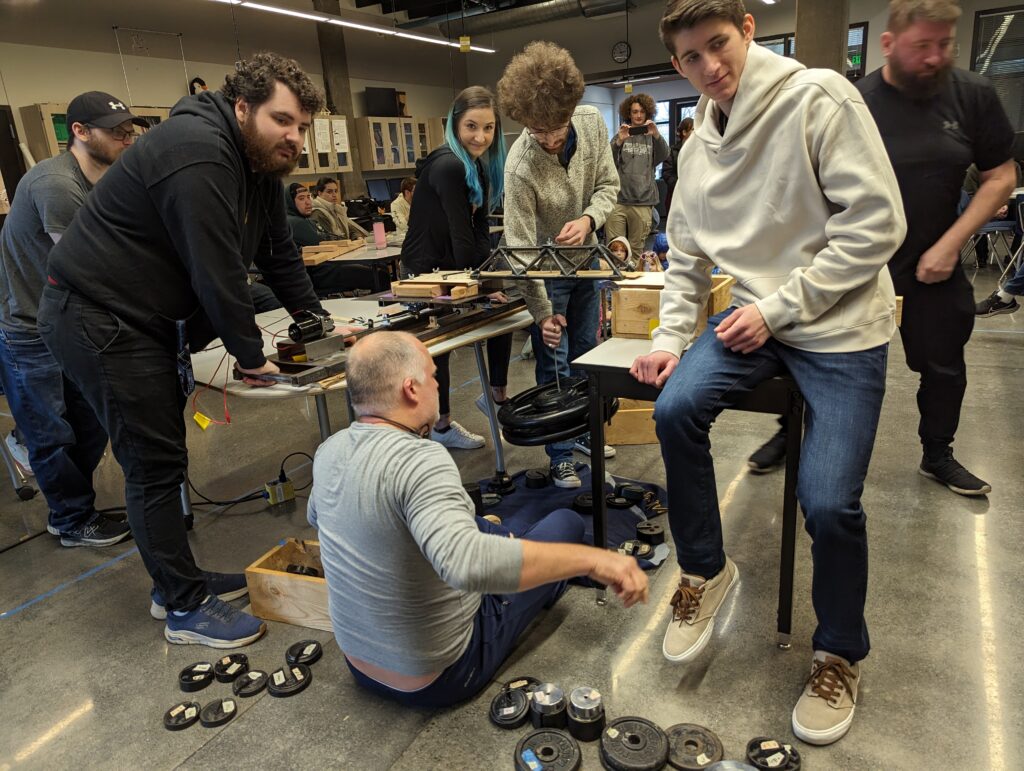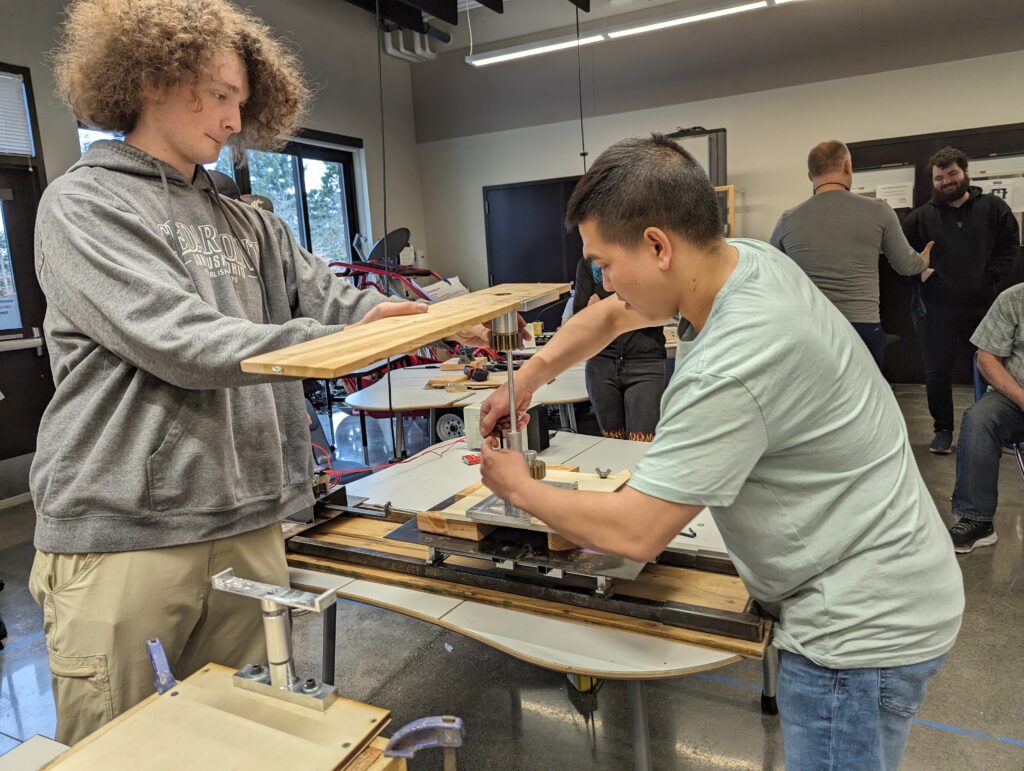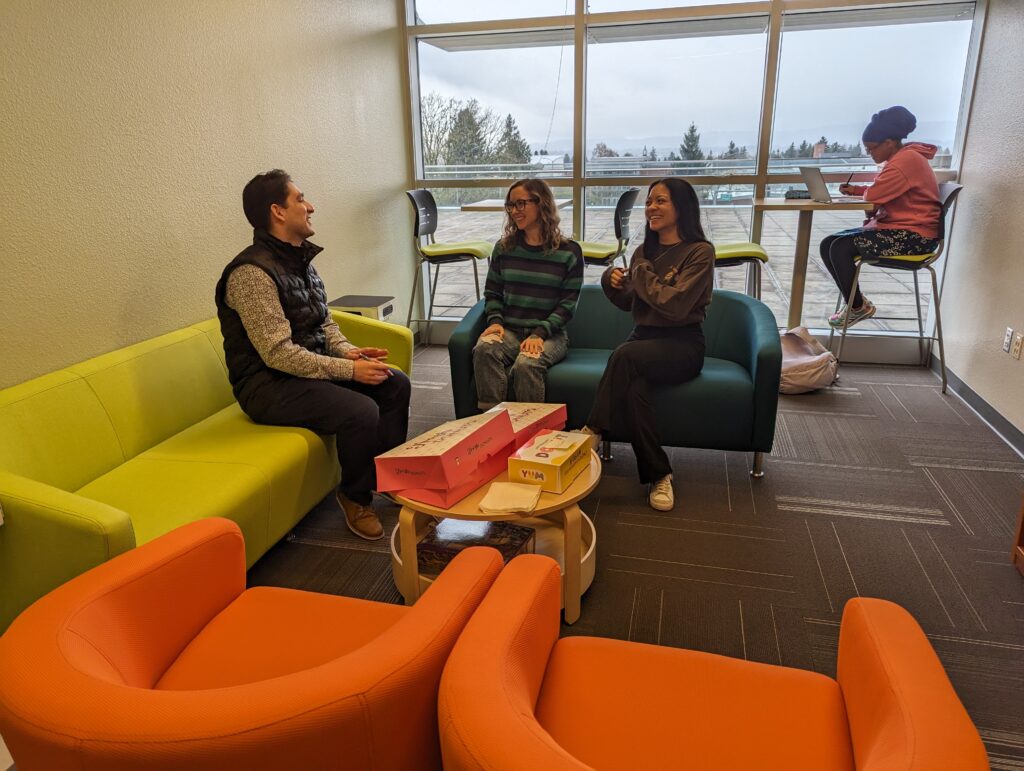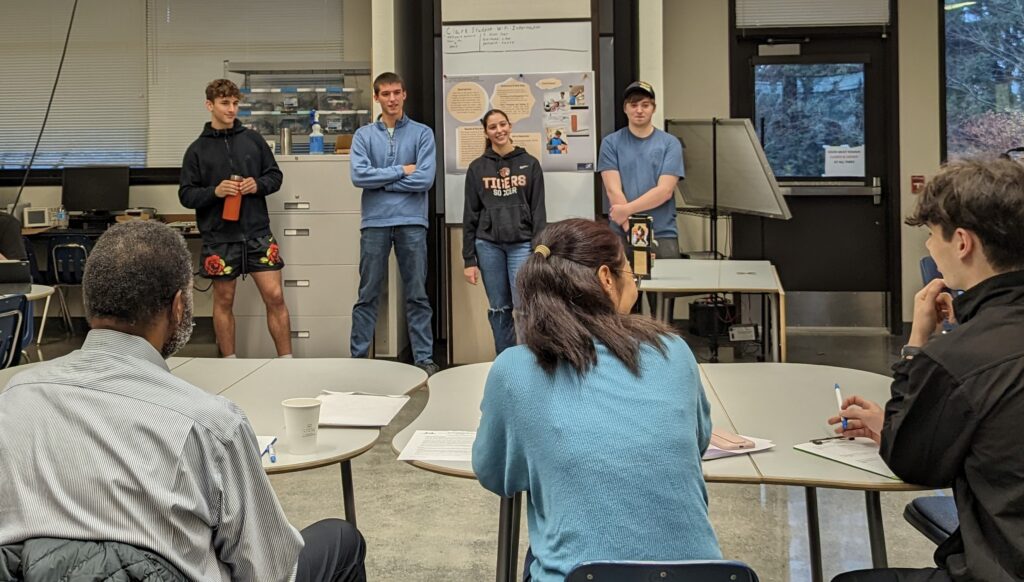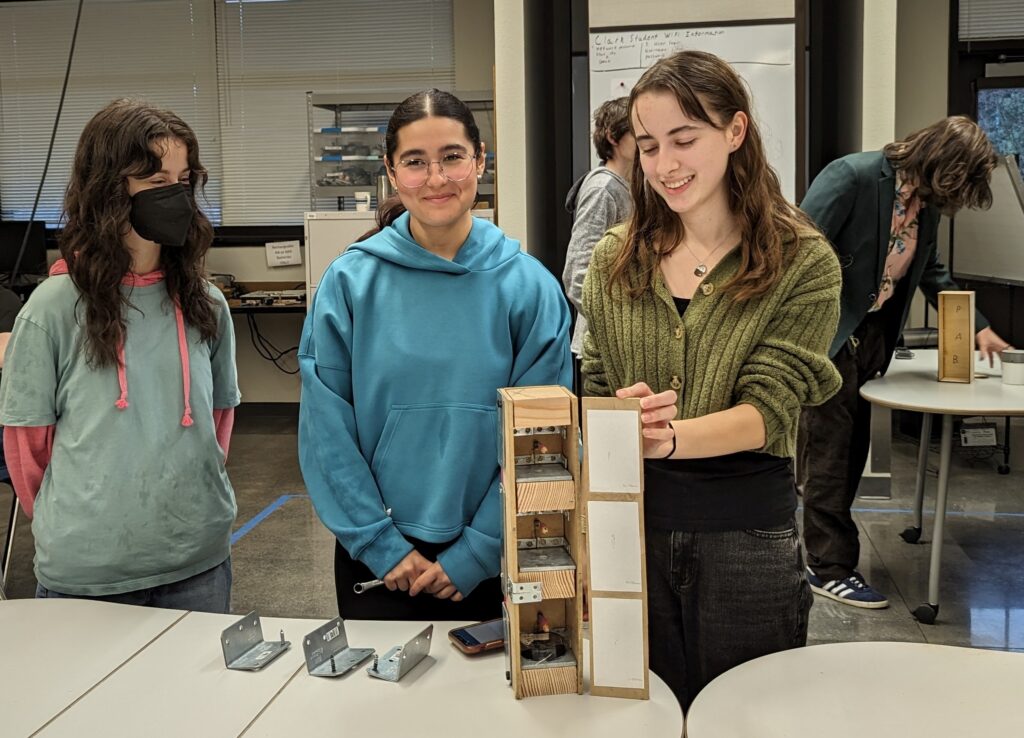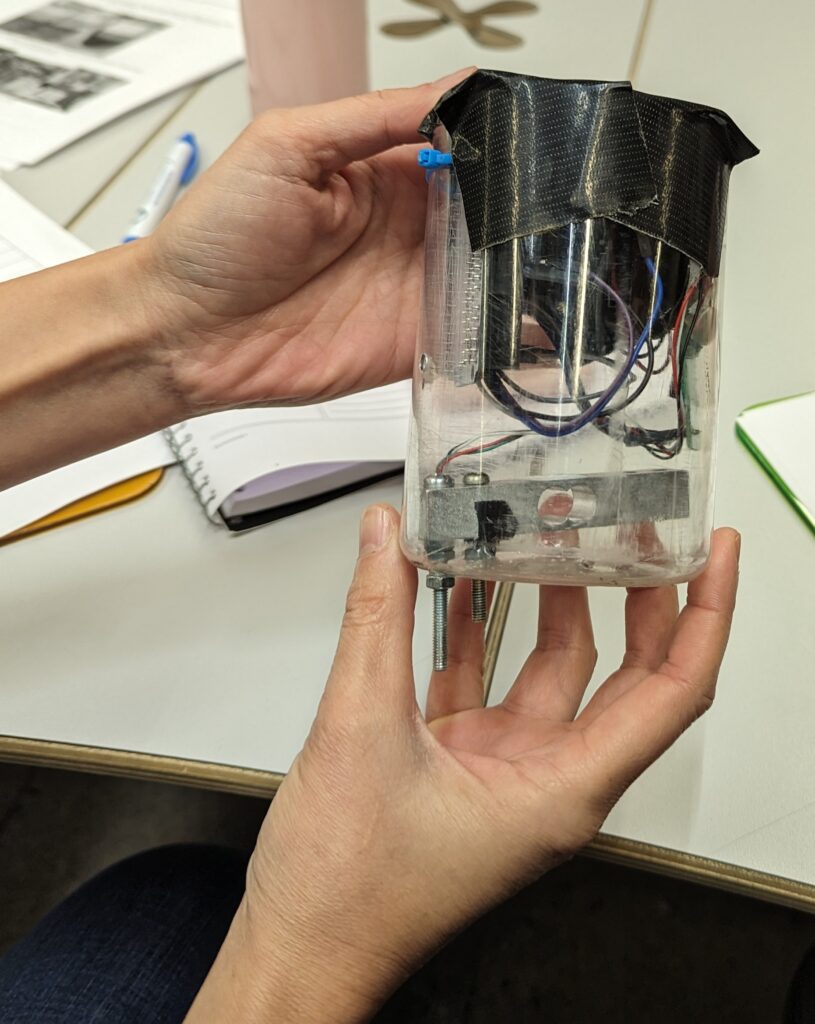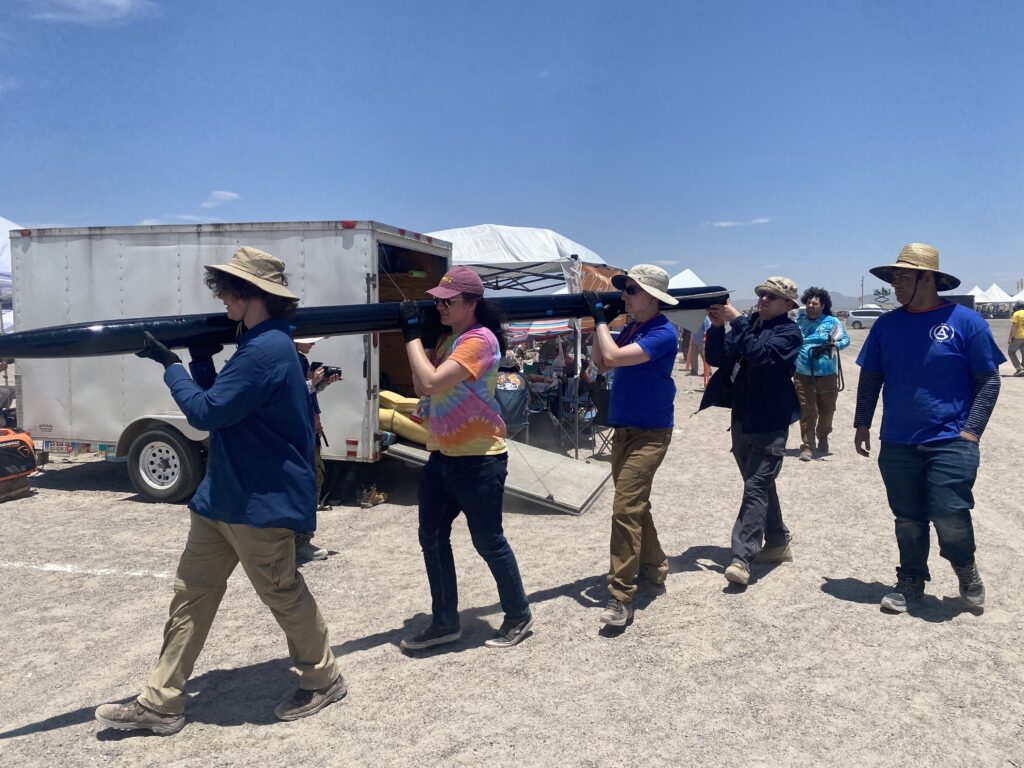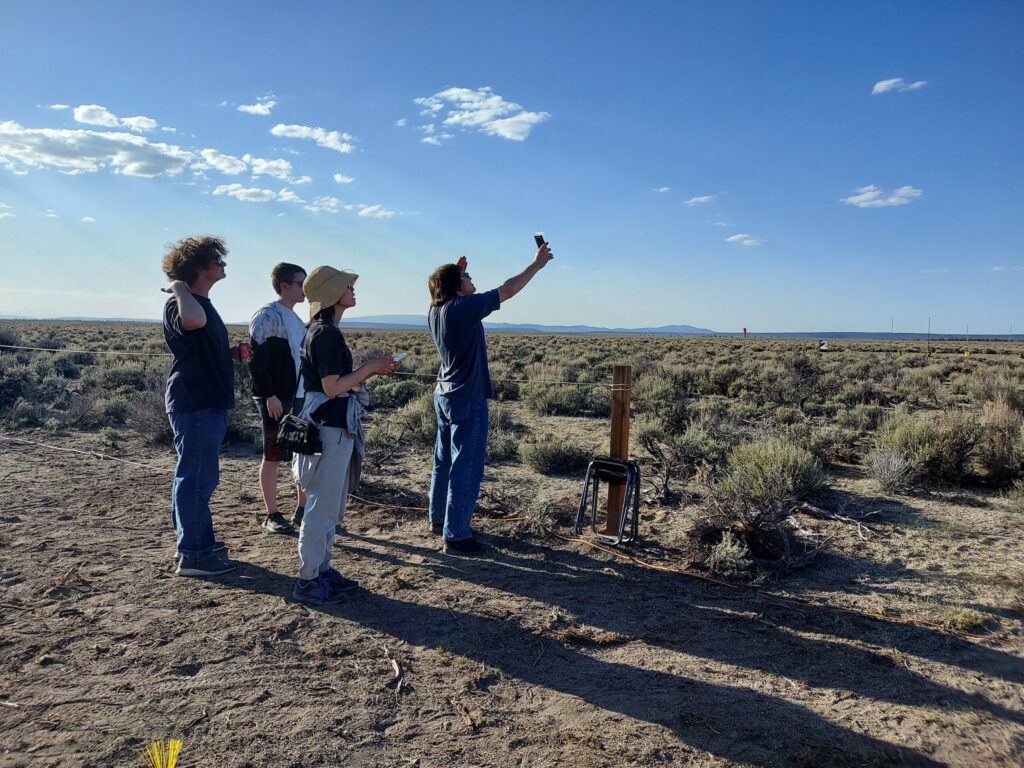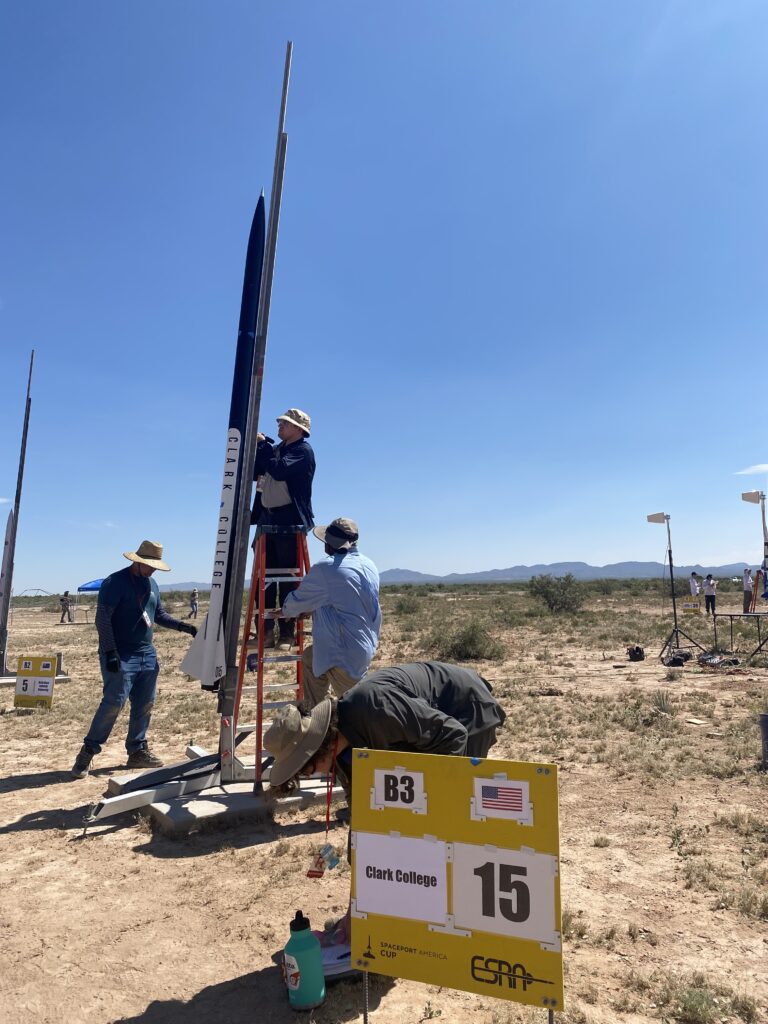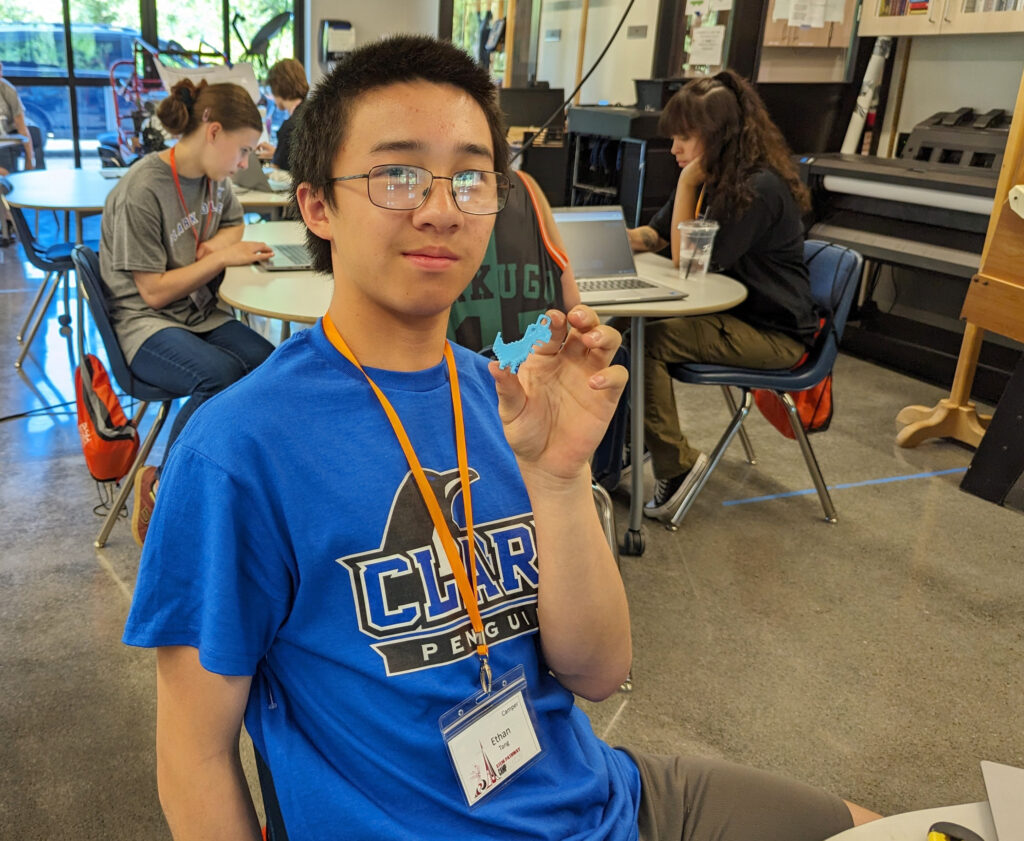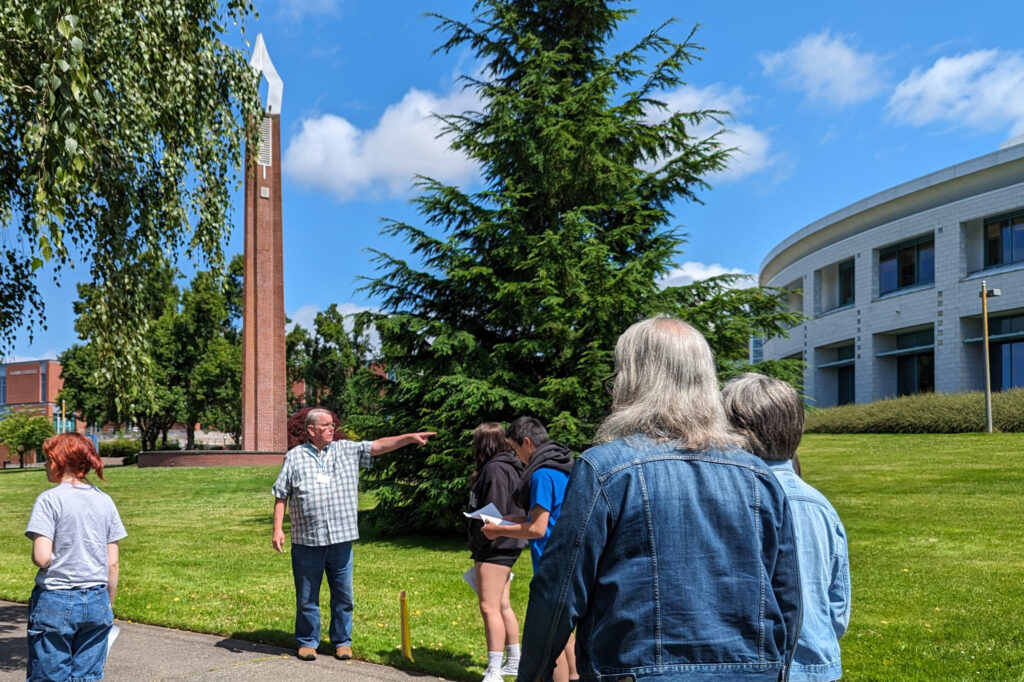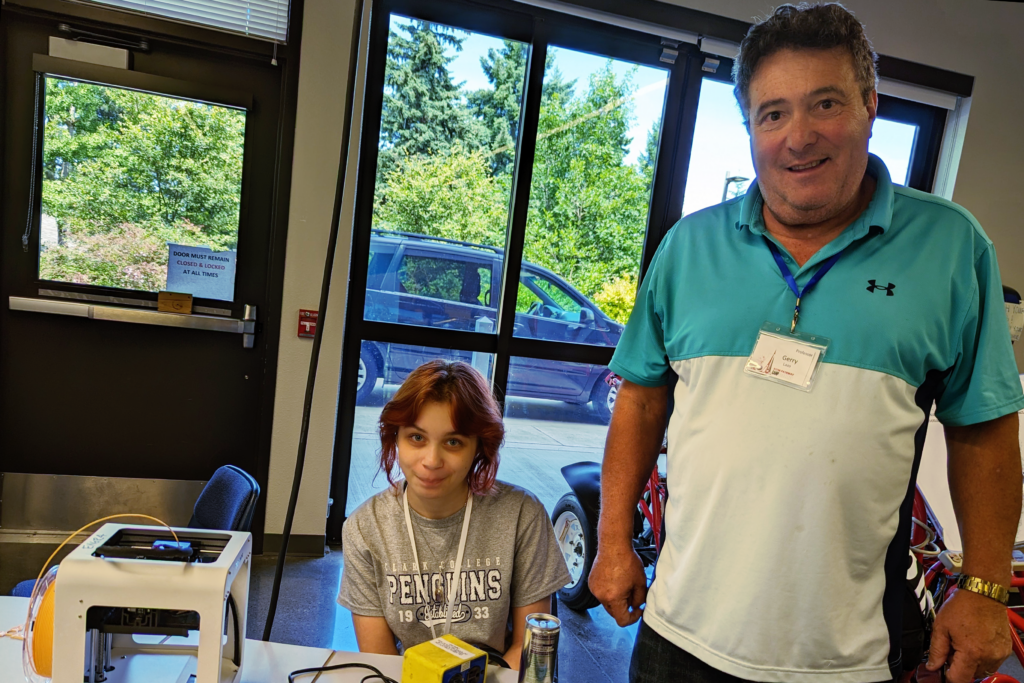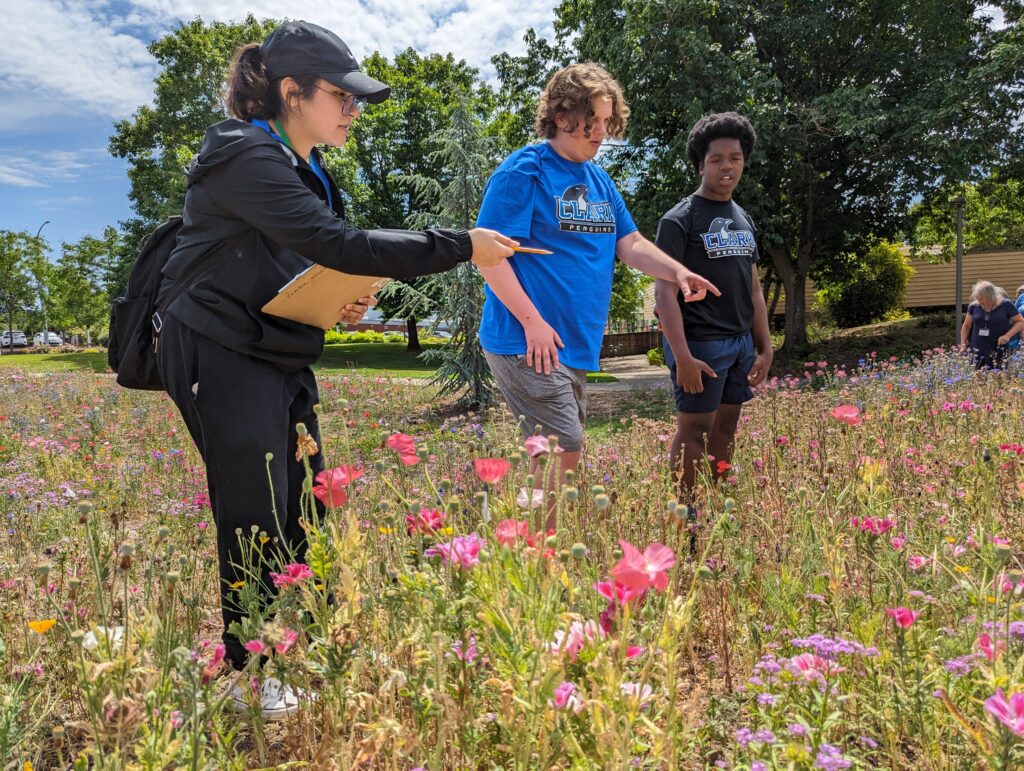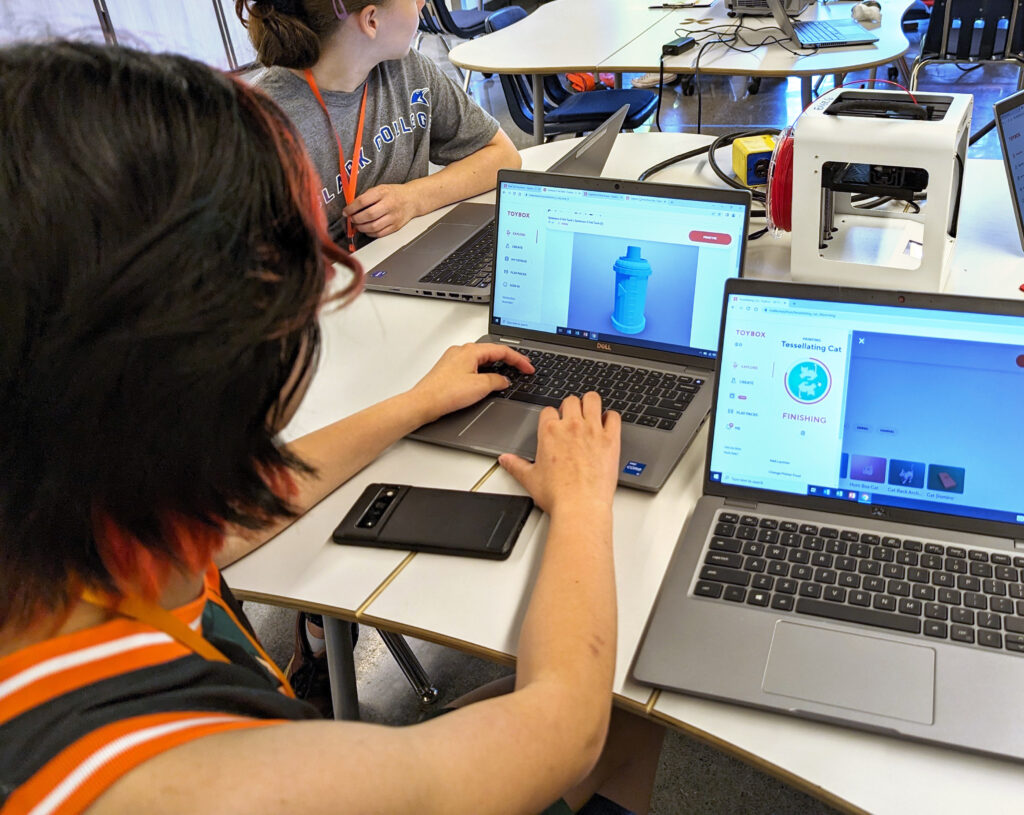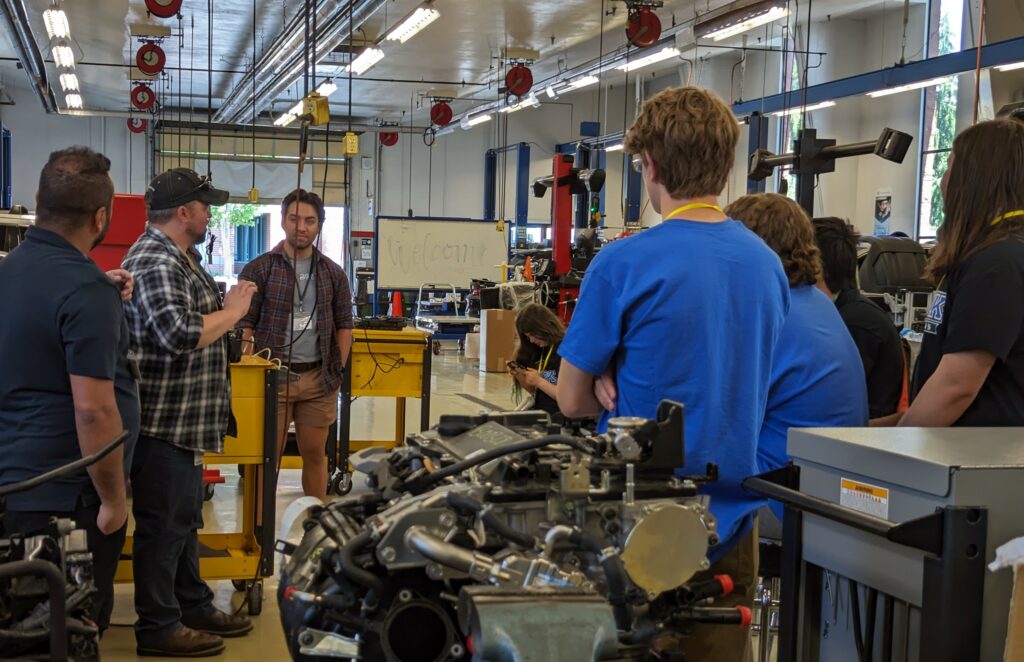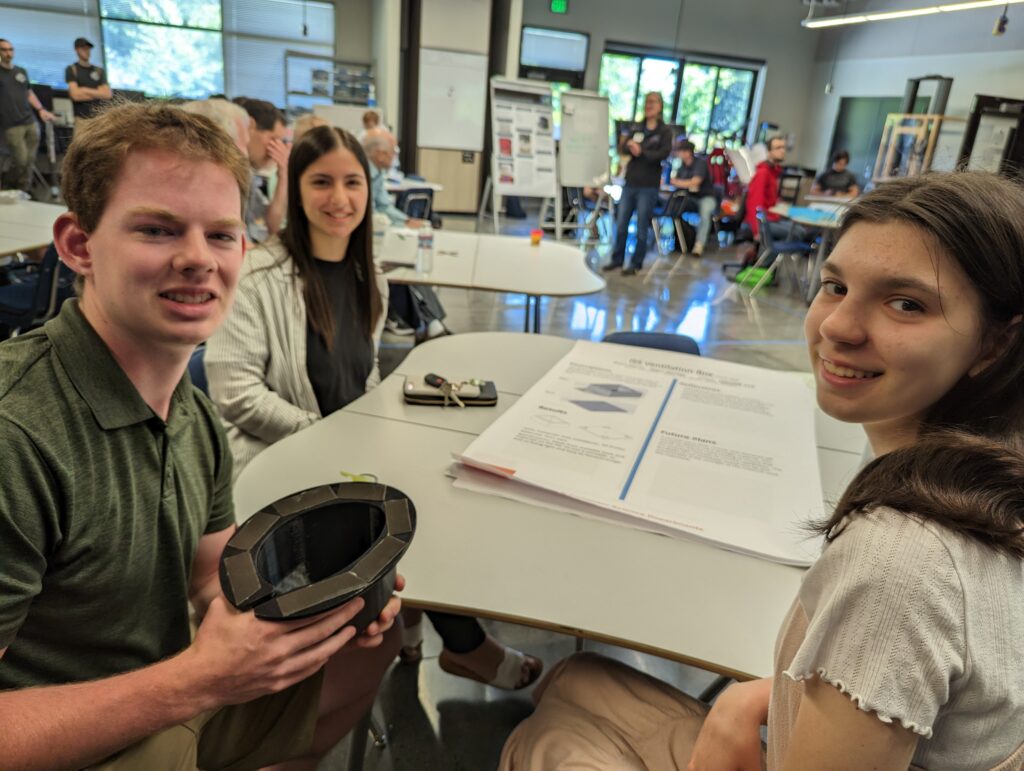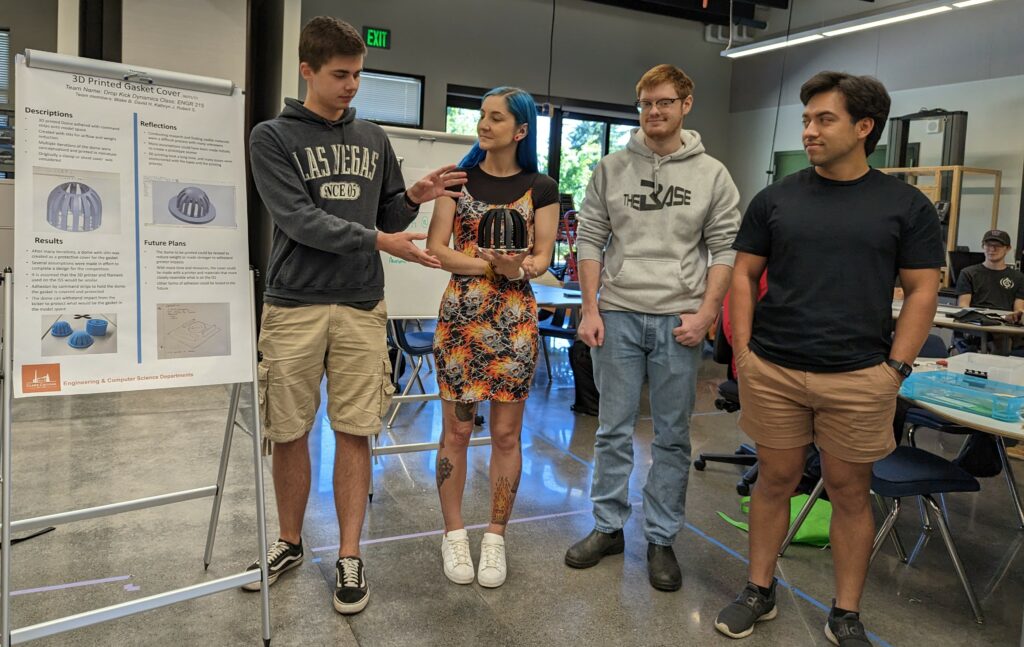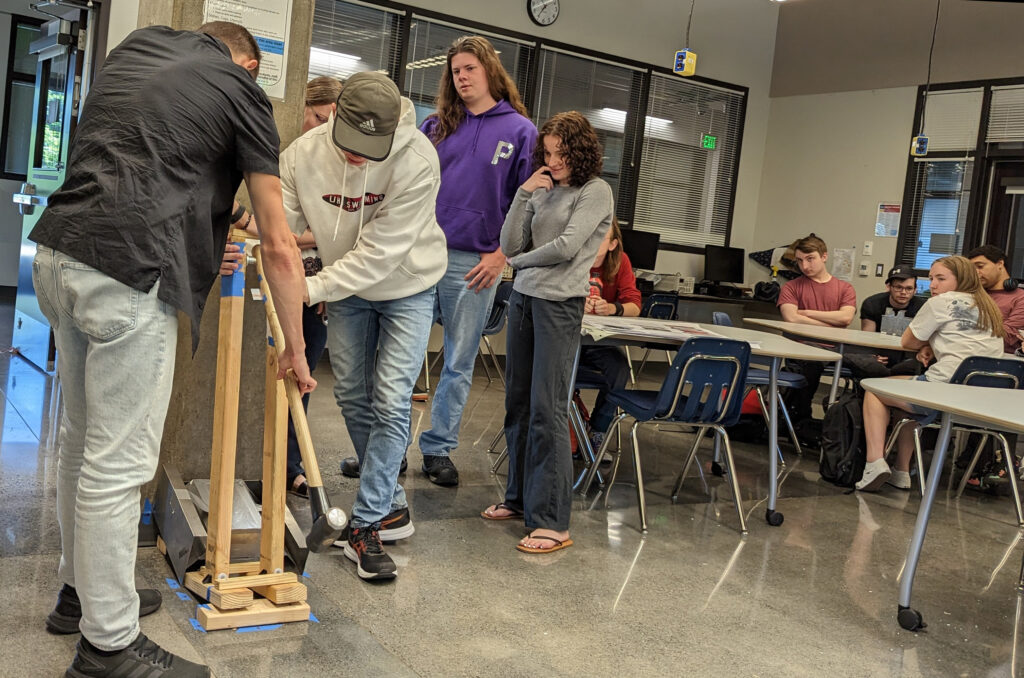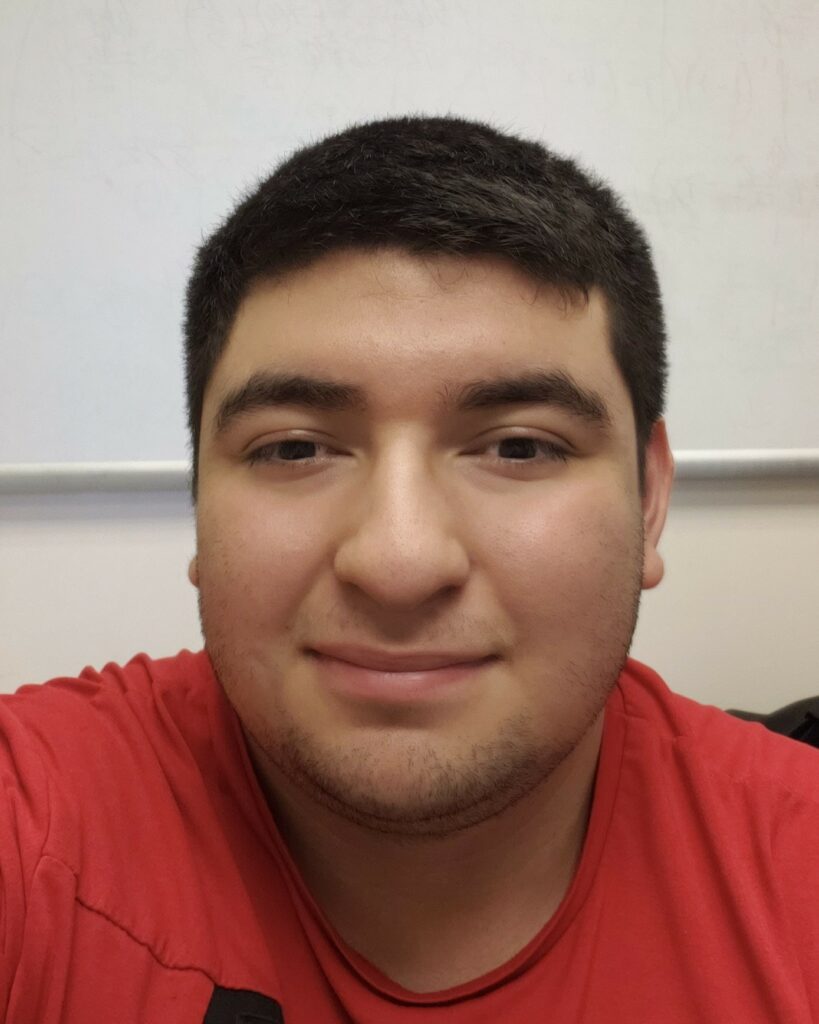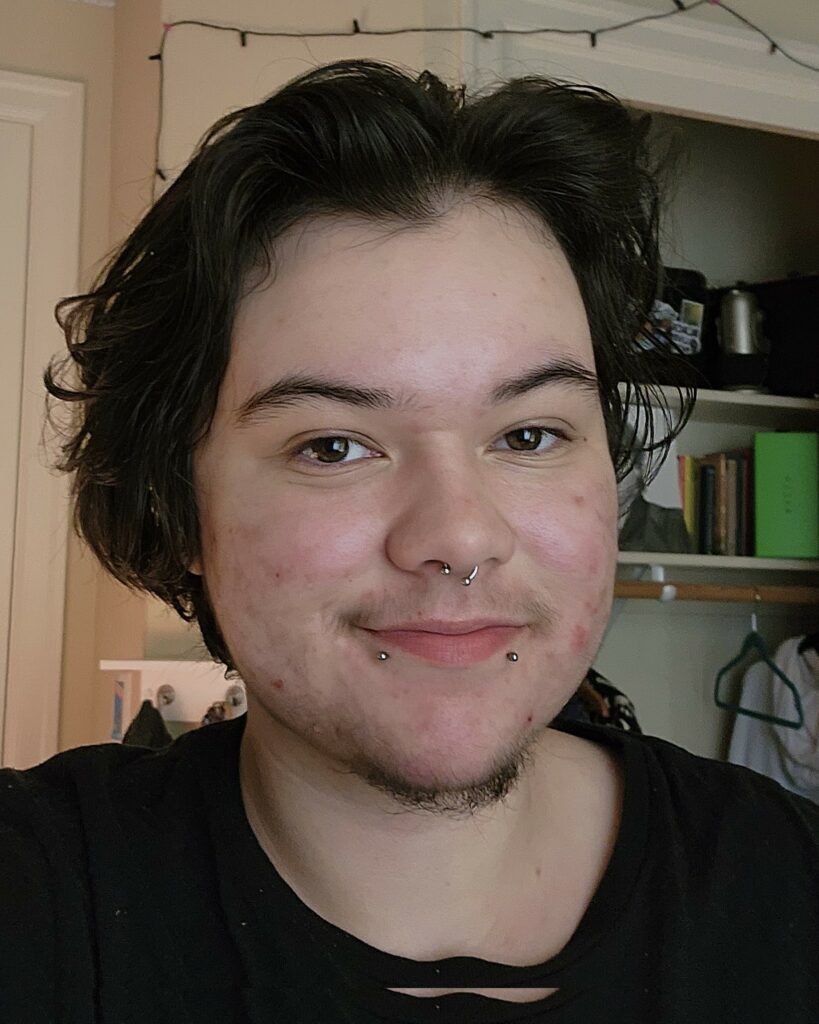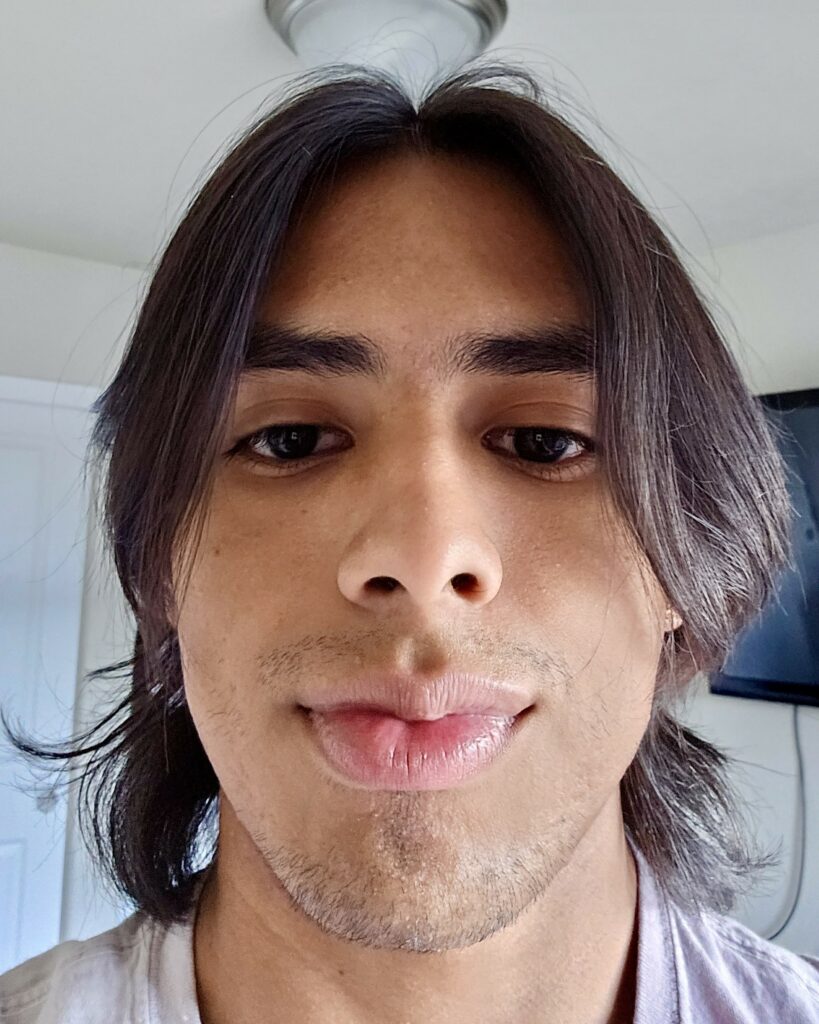Guided Pathways Camps
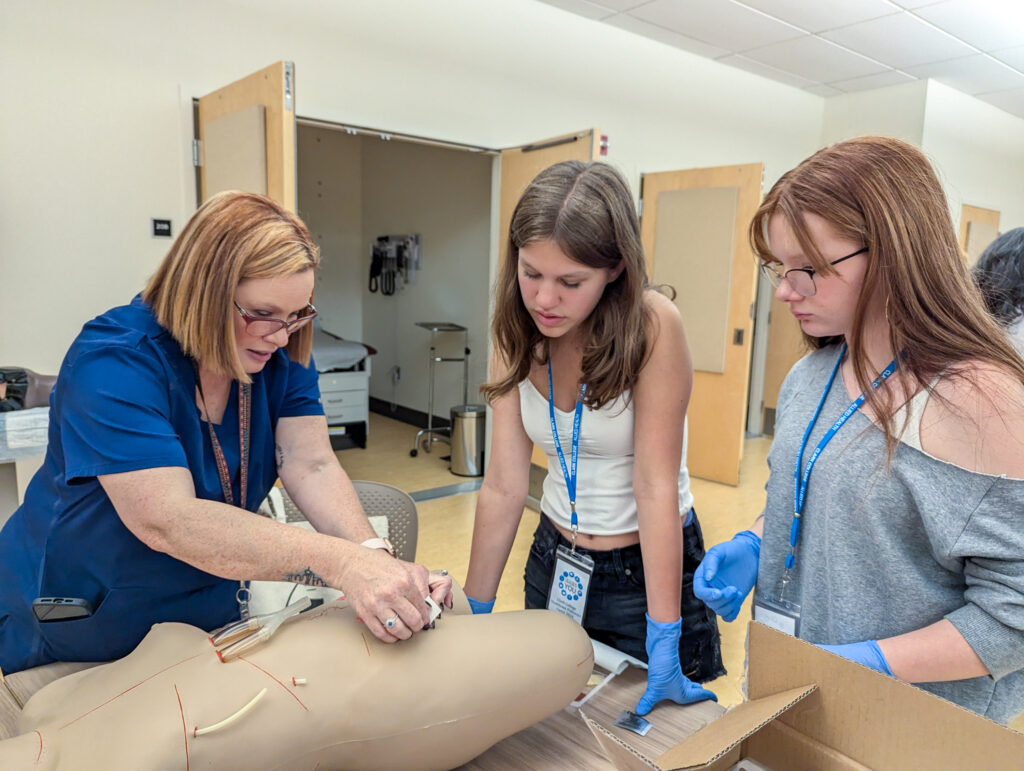
Director of Medical Assisting Sarah Kuzera (above, far left) stood in her classroom and held up a medical mannequin torso affectionately named “Roberta.” Sixteen middle- and high-school students watched Kuzera demonstrate how to remove surgical stitches and staples. Then it was their turn.
These students were among about 100 students who attended career pathways camps at Clark College during the week of June 25-28. Clark College hosted Health Care Pathway Camp and STEM Pathway Camp for middle- and high school students to consider careers in health care and STEM fields. Both camps were funded by Guided Pathways, Clark College Foundation, and Career Connect Washington. This was the second year these camps were offered to systemically non-dominant students1. Breakfast, lunch, snacks, and drinks were provided, along with a Clark T-shirt.
“Guided Pathways is thrilled to support both the healthcare and STEM camps again this year,” said Rhianna Johnson, director of Guided Pathways and Partnerships. “Sparking interest in young minds is critical for helping students believe that college is a viable path for them. Providing exploratory opportunities to gain hands-on experience in these careers and learning pathways is a hallmark of equitable access, a foundational component of the Guided Pathways model.”
In each classroom and laboratory, students were provided instruction from Clark faculty and were offered opportunities to learn hands-on skills used in those careers.
Health Care Pathway Camp
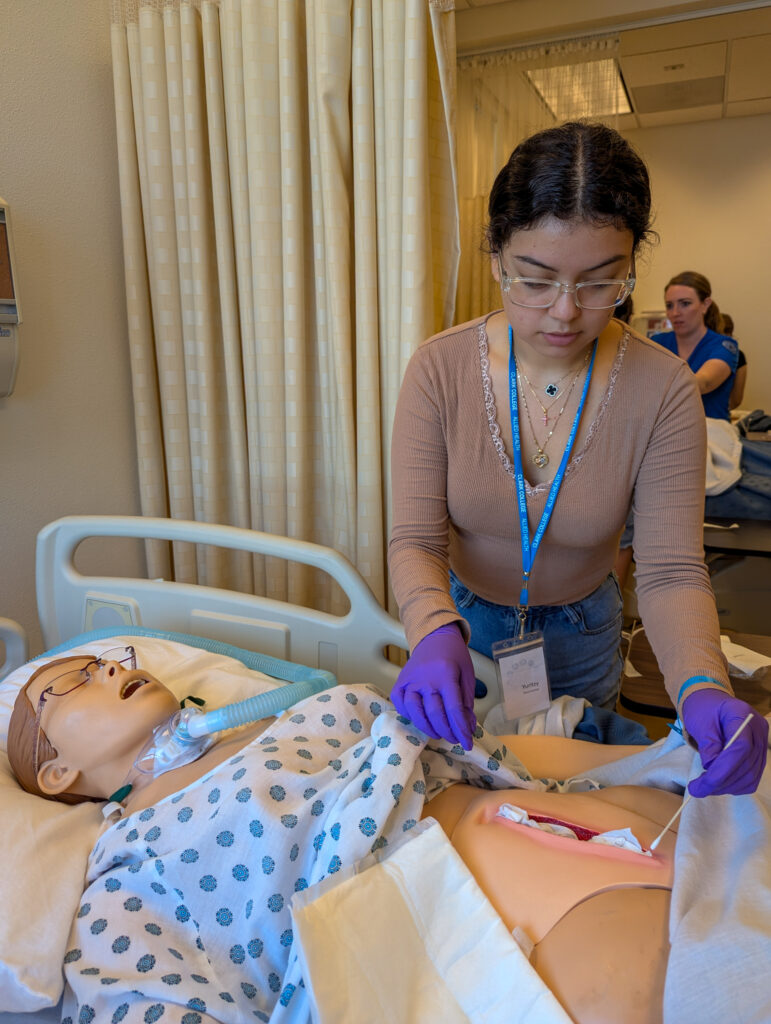
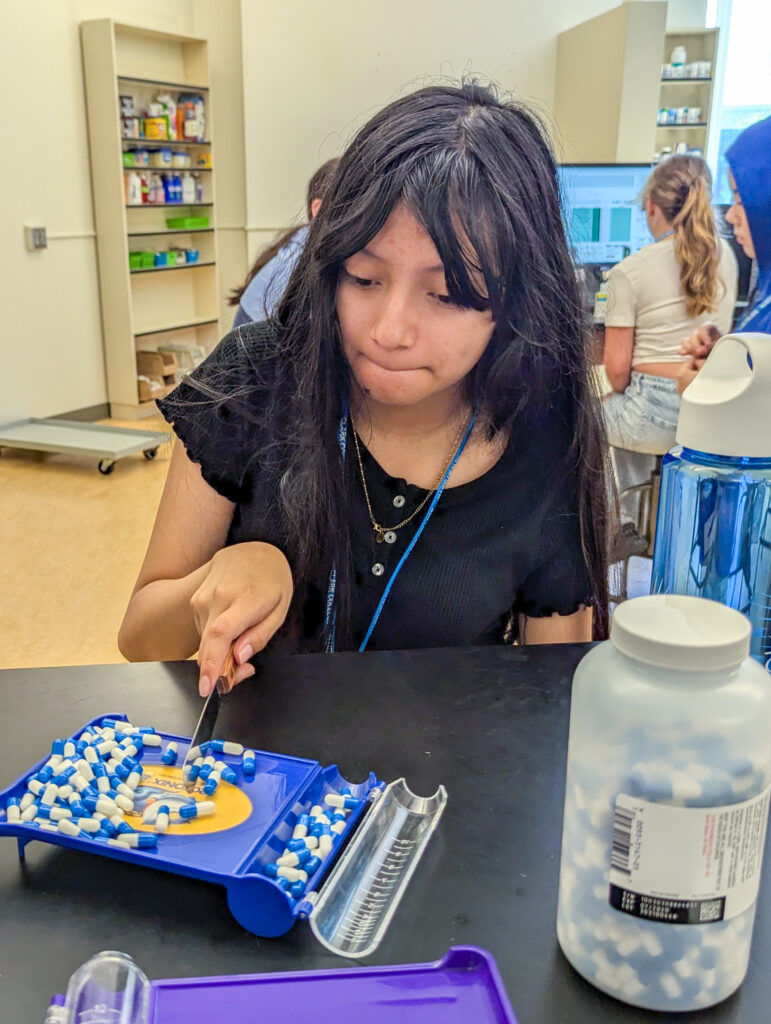
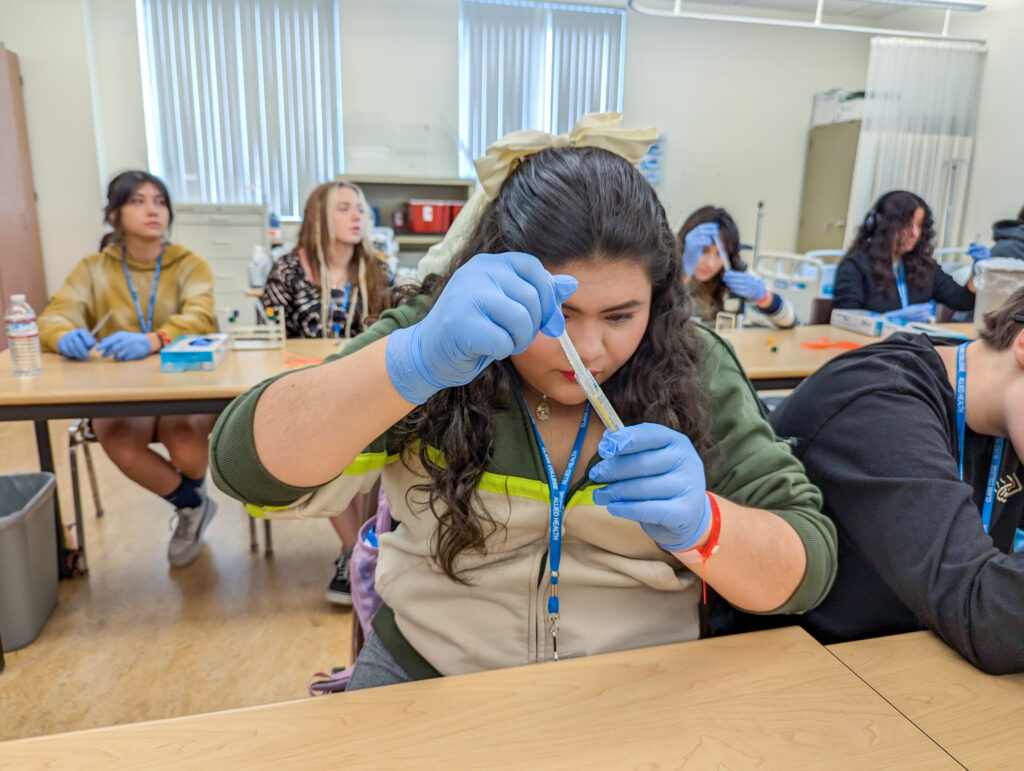
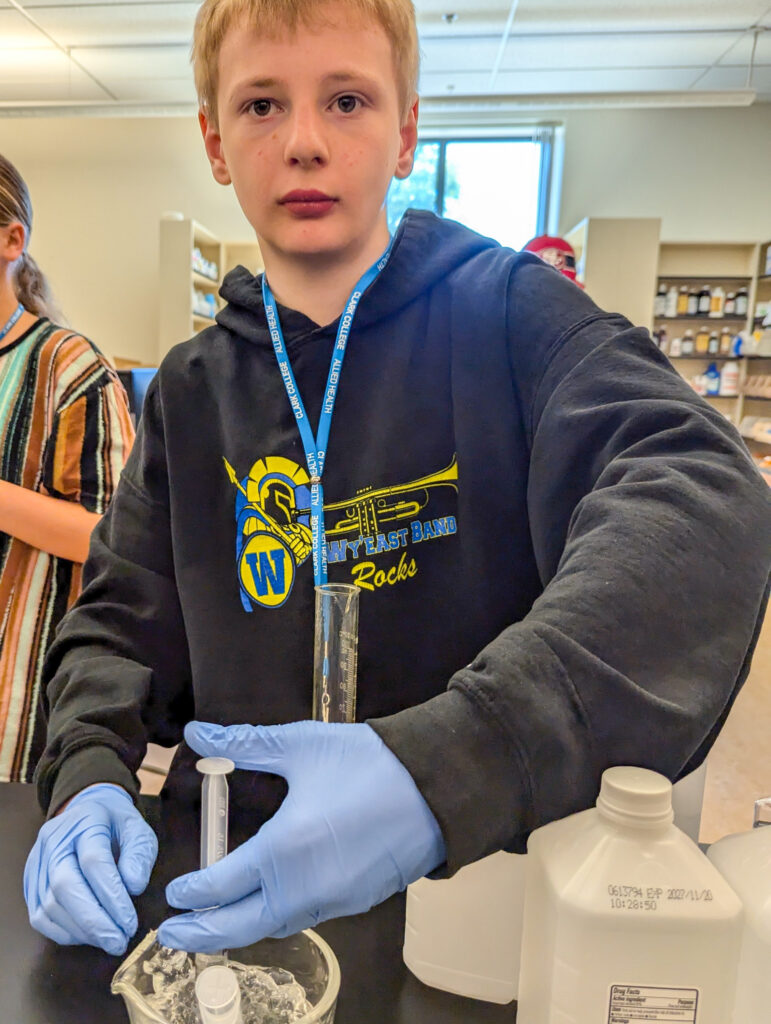
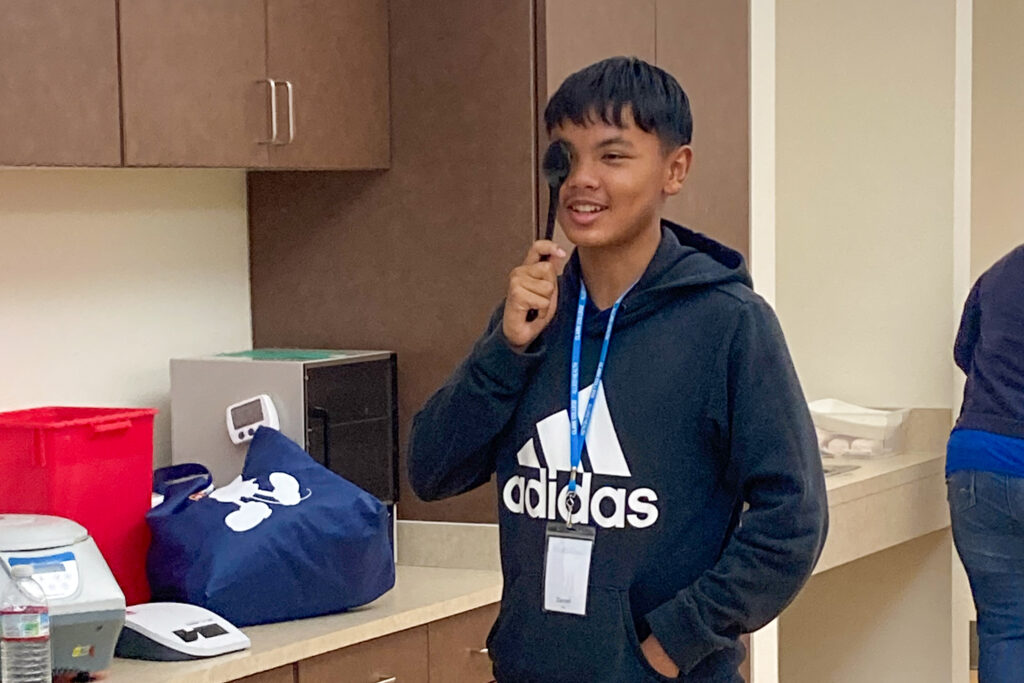
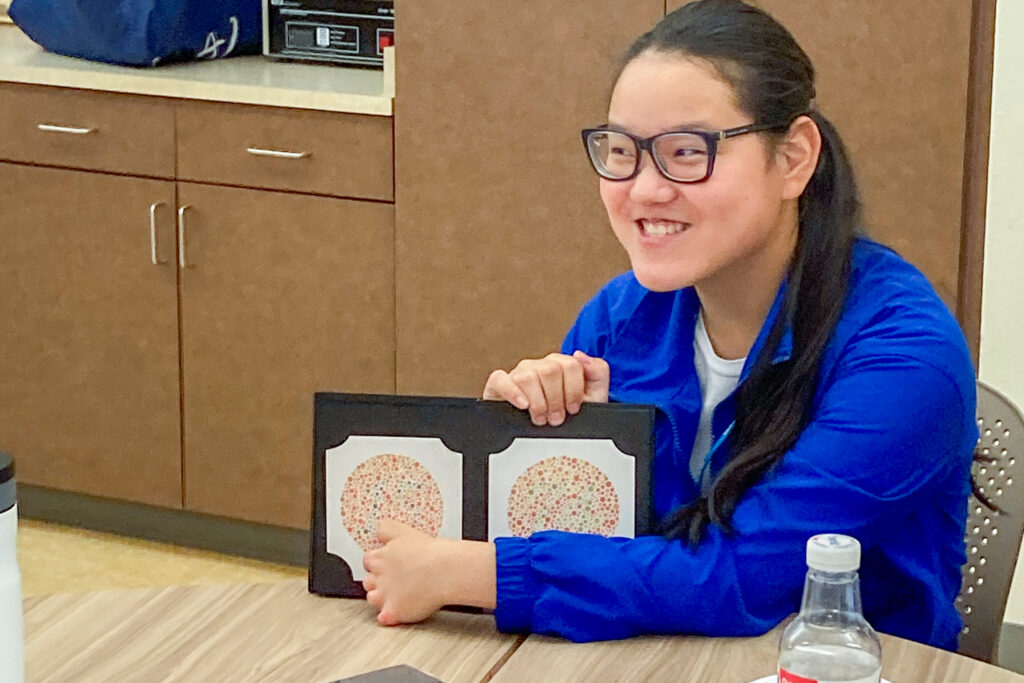
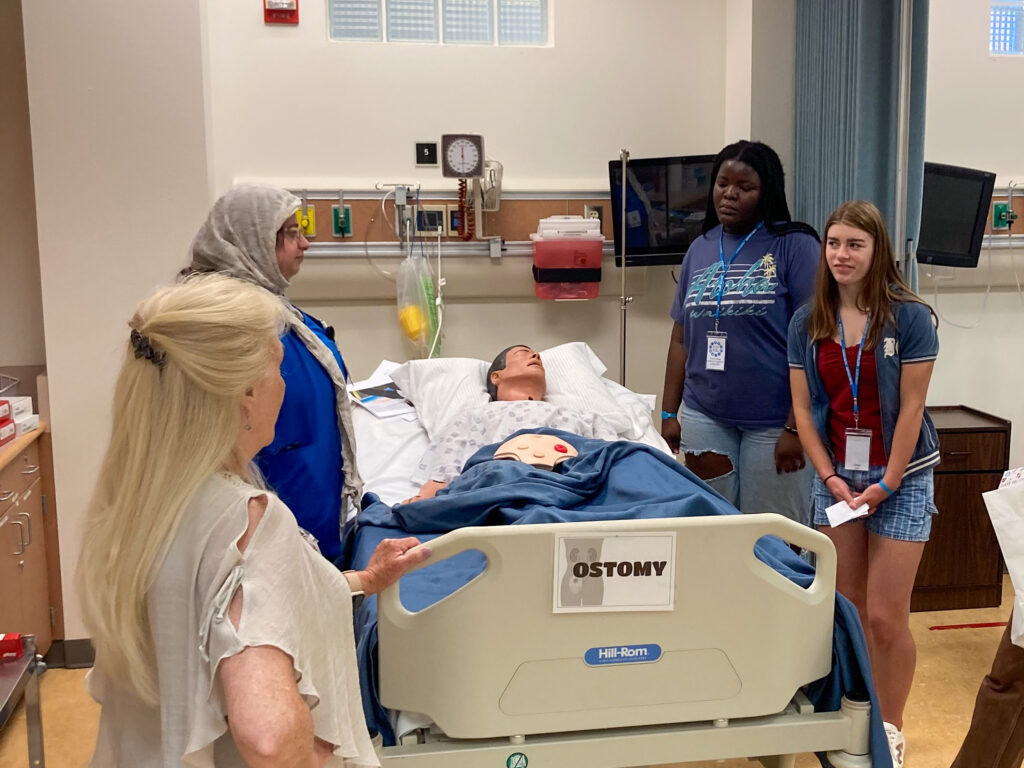
The Health Care Pathway Camp was attended by about 70 enthusiastic students who spent one day in Clark’s Allied Health building at Washington State University Vancouver. Students were introduced to a variety of potential careers, including dental hygiene, emergency medical technician, health information management, medical assisting, nursing, pharmacy technician, and phlebotomy technician.
- In the medical assisting classroom, students practiced removing surgical stitches and staples, used a cuff to check blood pressure, performed vision and hearing tests, and wrapped arms with casting material.
- Students in the pharmacy technician classroom practiced counting pill blanks, making hand sanitizer in a simulated compounding pharmacy, and performing syringe draws in a protective hood.
- In the phlebotomy technician classroom, students used syringes to practice injections into artificial venipuncture and injection arms and more.
- In the nursing simulation laboratory, students performed CPR compressions on lifelike interactive patient simulators, practiced treating a deep wound, and more.
In every classroom and laboratory, students were engaged and asked questions as they learned about potential health care careers.
Science, Technology, Engineering, and Math (STEM) Pathway Camp
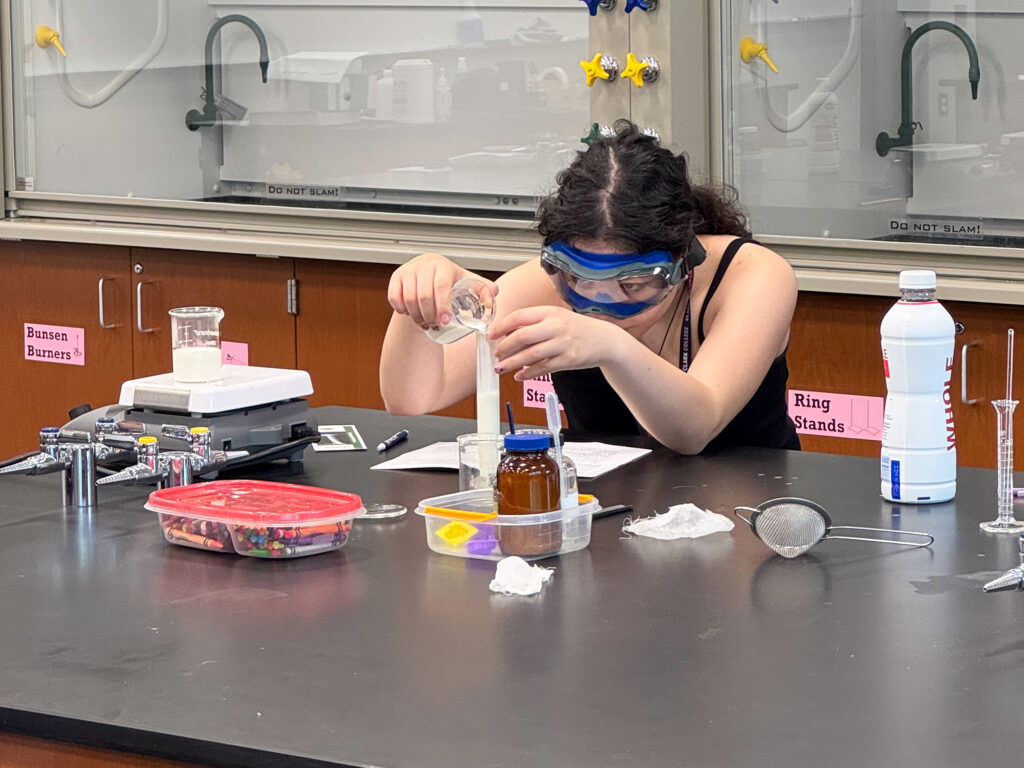
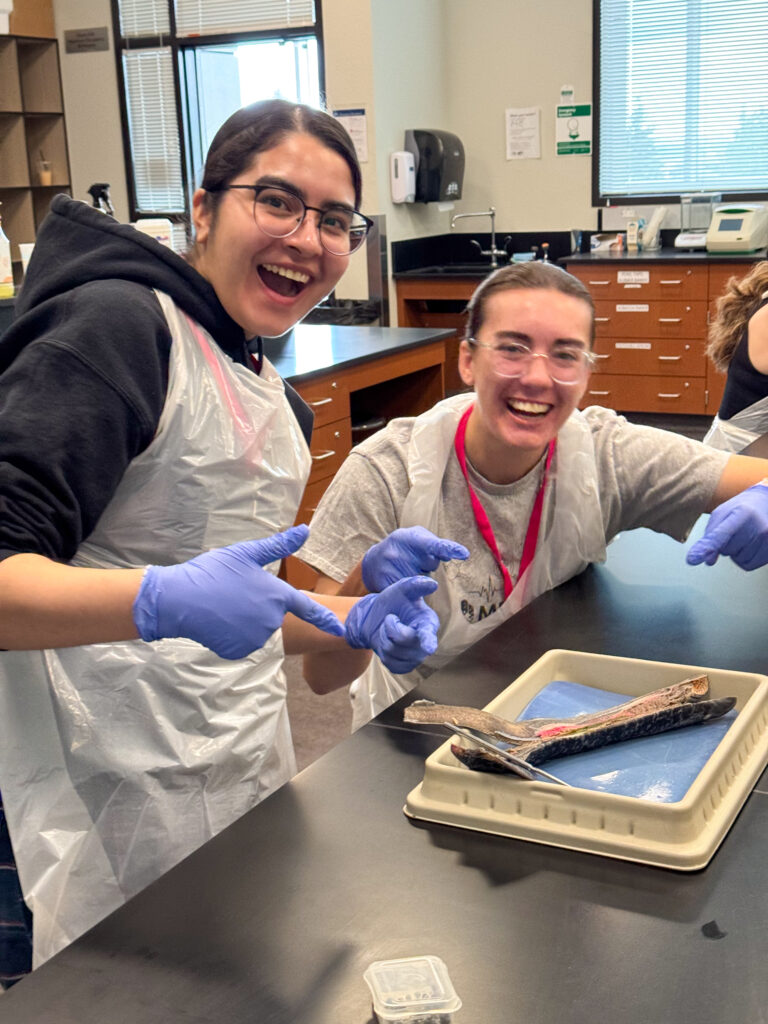
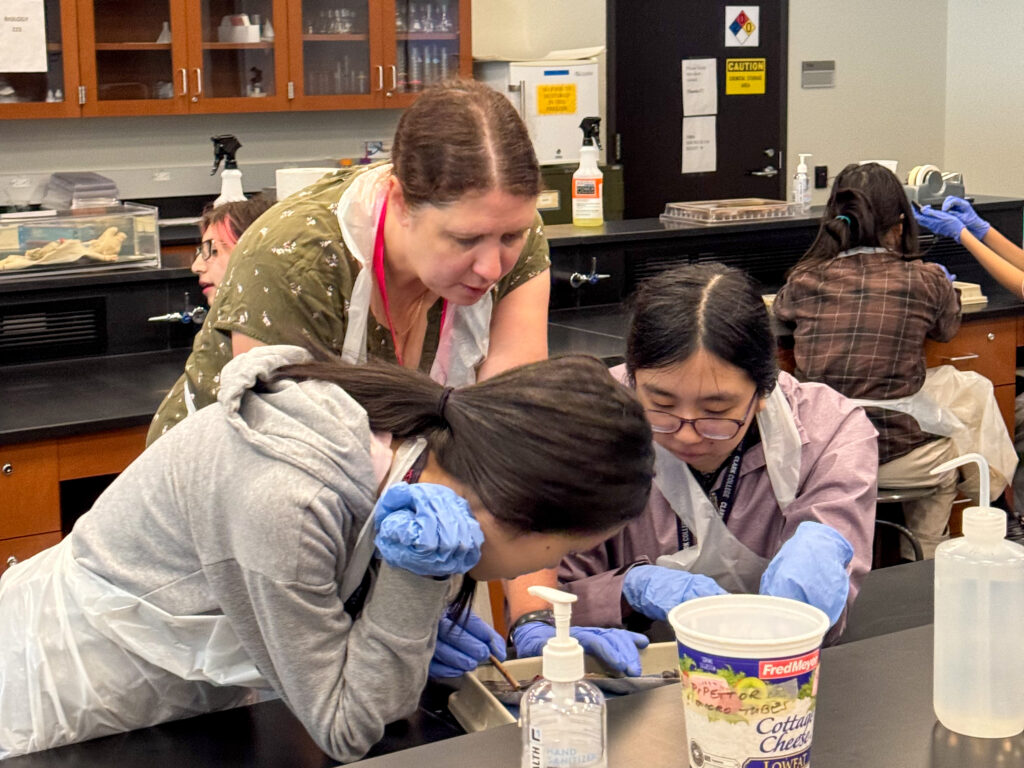
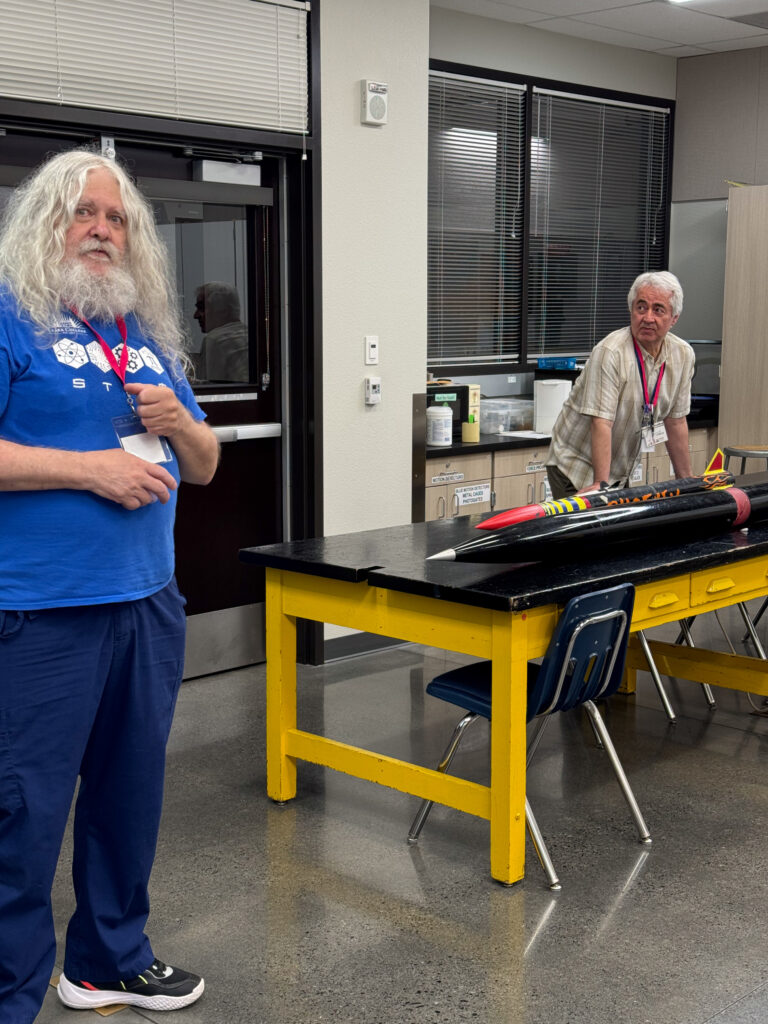
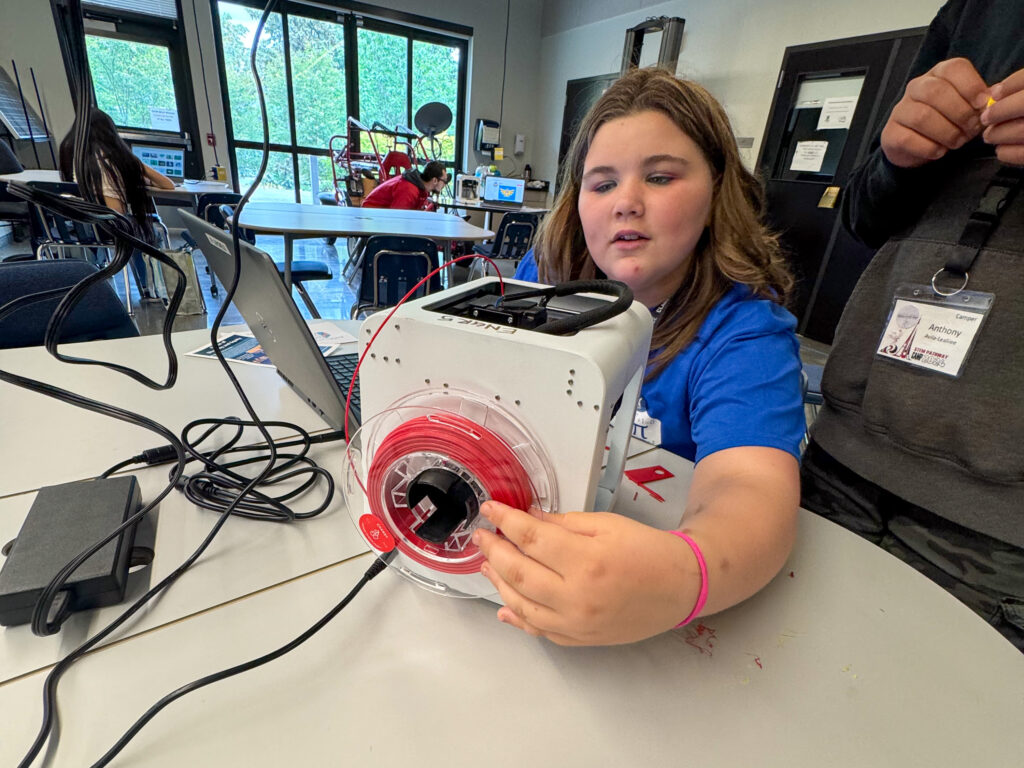
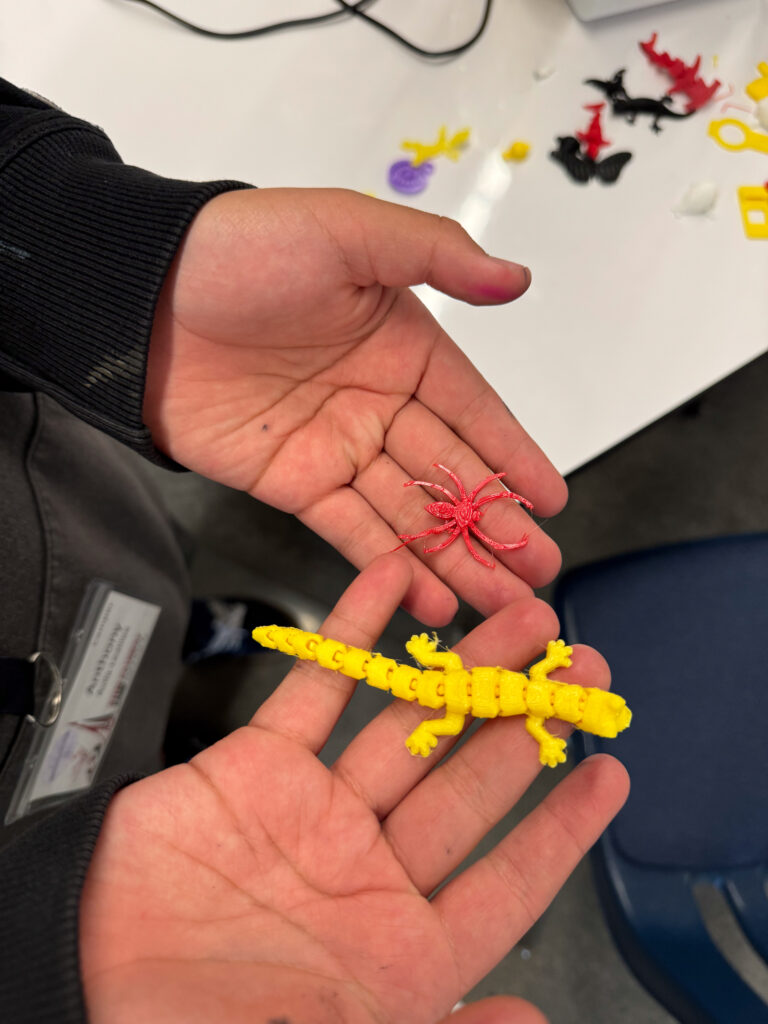
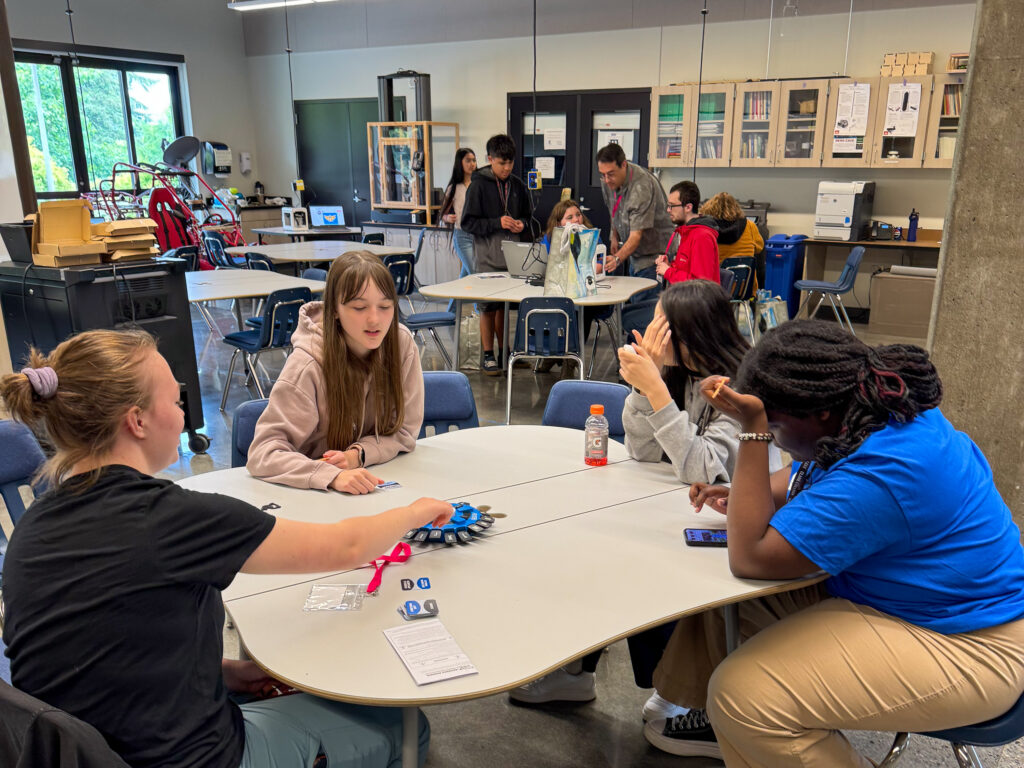
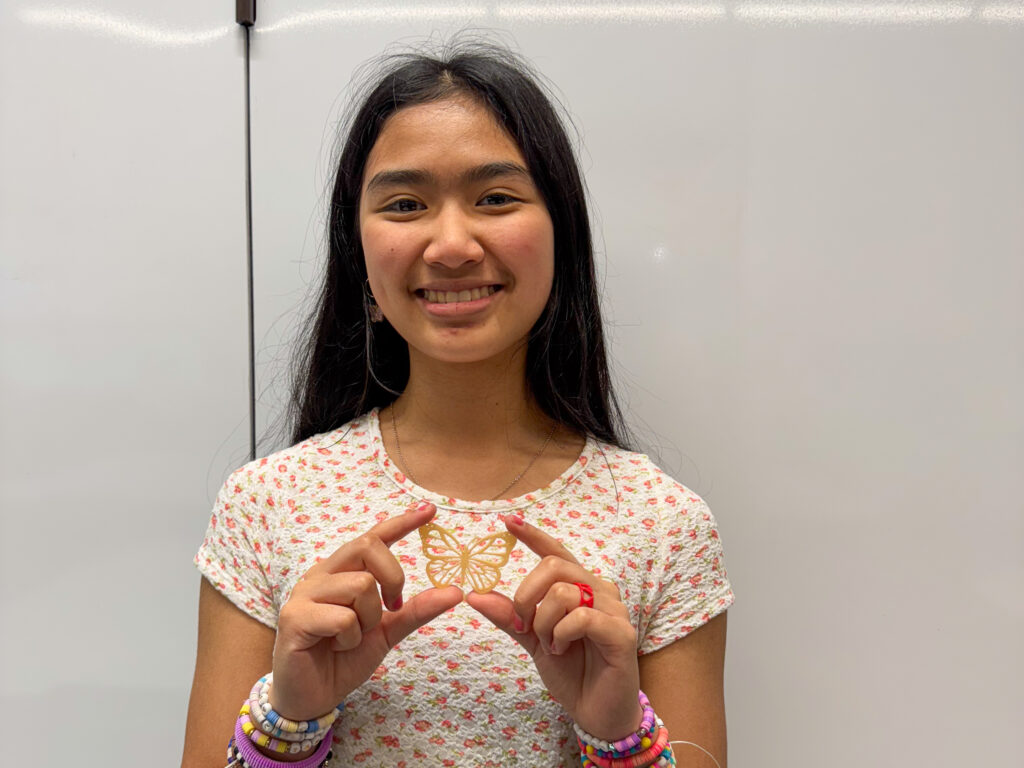
The STEM Pathway Camp partnered with Mathematics, Engineering, Science Achievement (MESA) to introduce systemically non-dominant students1 to biology, engineering, chemistry, rocketry, surveying and geomatics, and more. During the free, two-day camp, 30 attendees participated in six activities. Campers also received breakfast and lunch.
Engineering Professor Carol Hsu mentioned that she noticed students were already making connections with each other and exchanging contact information during lunch on the first day of camp.
Activities included:
- Dissecting a lamprey eel.
- Creating plastics from corn and milk to compare the strength, durability, and biodegradability of them.
- Using rocket kits to build their own tiny model rockets. They will have to wait to launch them at an approved park.
- 3D printing. Students created tiny, plastic objects ranging from spiders to penguins.
- A compass scavenger hunt plus a contest to see who could guess the length of 100 feet.
- Touring Clark College campus.
Students were treated to a panel discussion by current Clark MESA students, who talked about their educational journeys, career pathways, and how the staff and faculty helped to demystify college and STEM fields specifically.
Johnson said, “Guided Pathways funding supports opportunities like the Health Care Pathways Camp and STEM Camp to ensure that potential students have access to information and experiences that will help them make positive career choices and challenge stereotypes about who can benefit from jobs in the healthcare and STEM fields.”
Photos: Clark College/Susan Parrish and Carly Rae Zent
